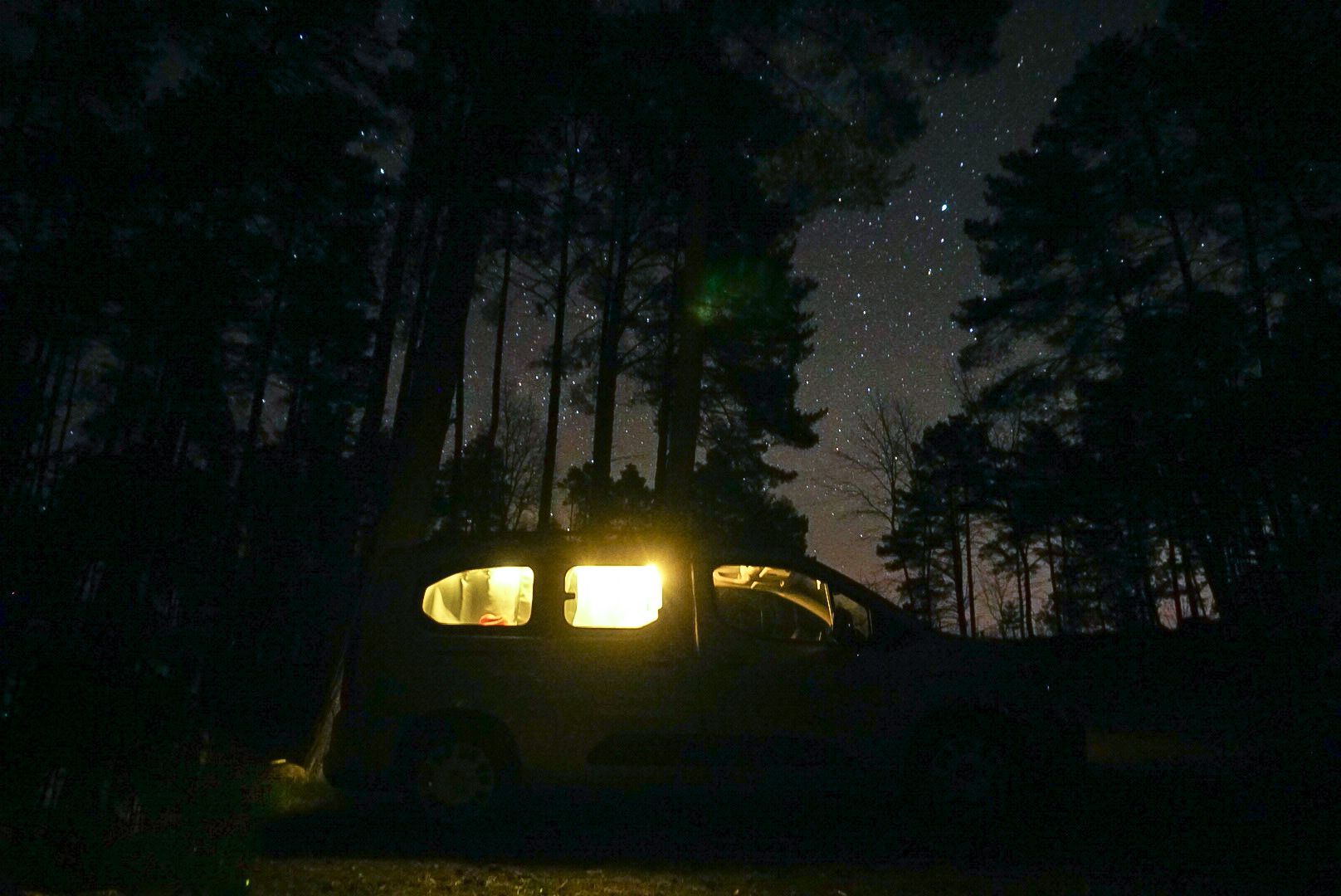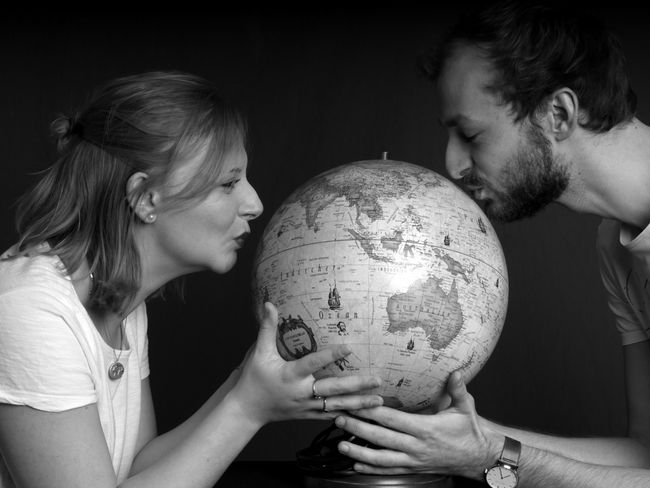Galapagos Part III: Untouched Isabela
Lolomiina: 20.01.2023
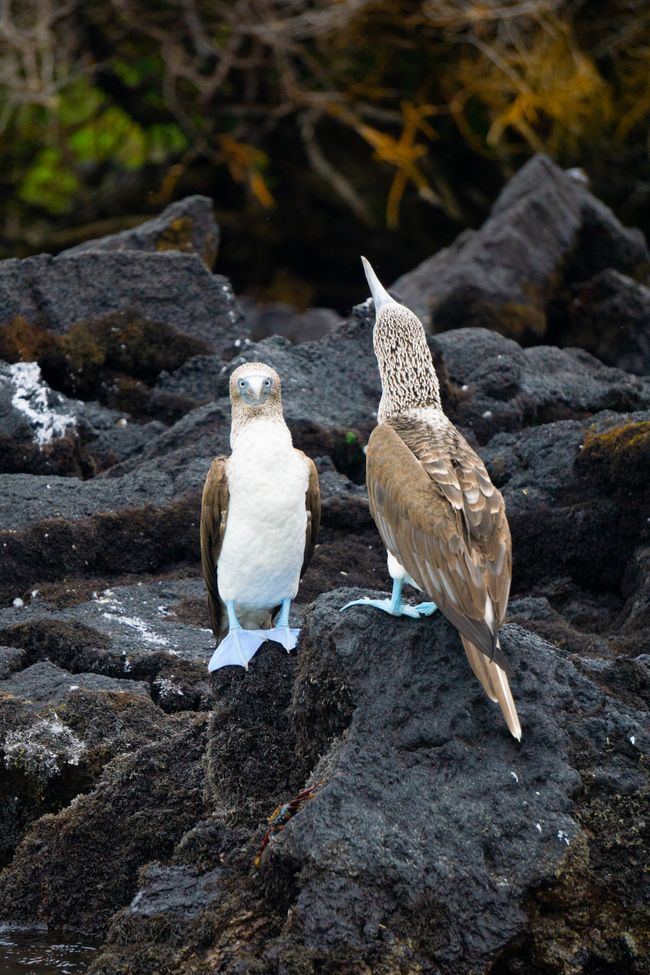
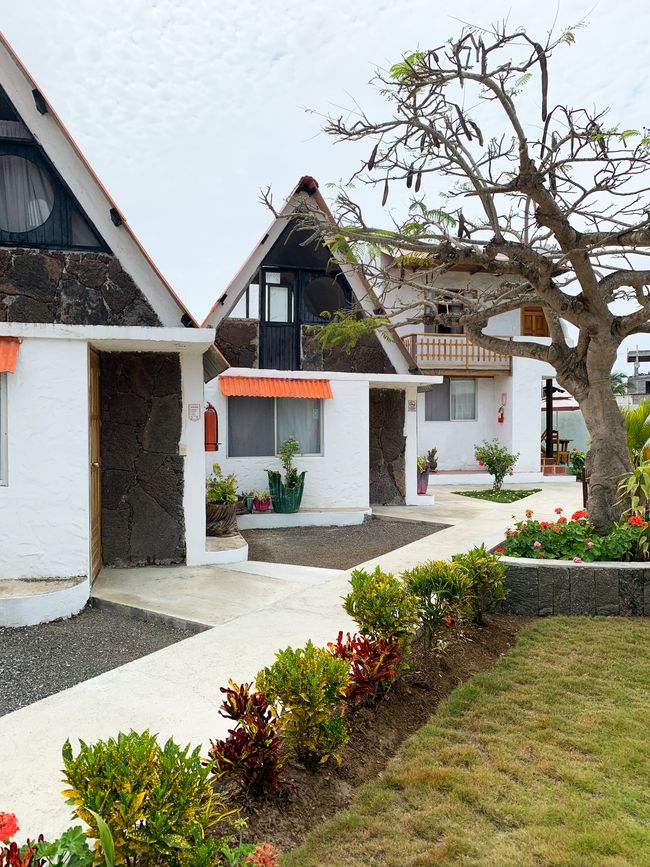
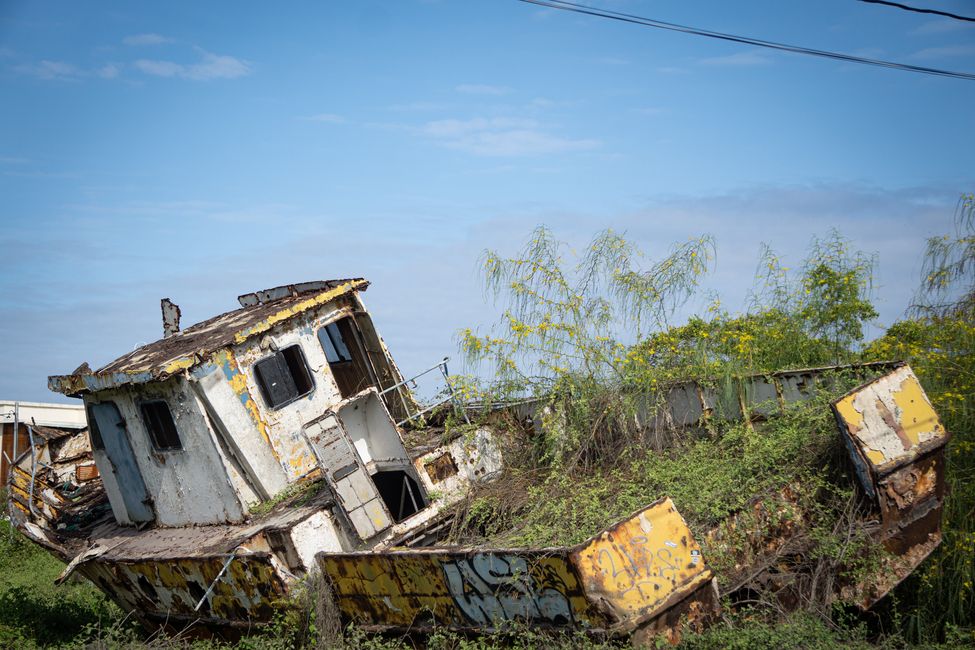
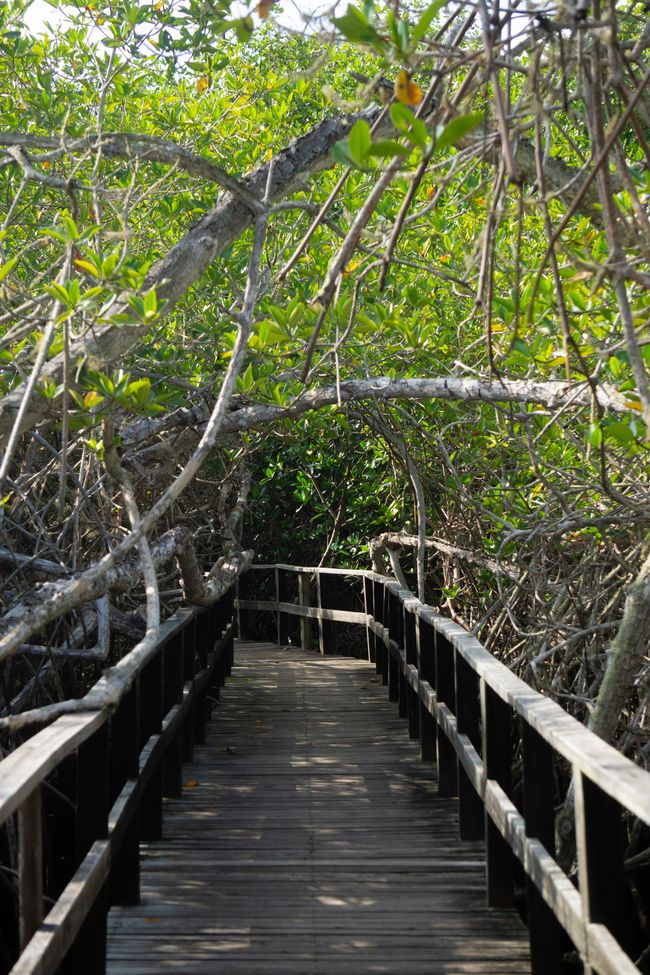
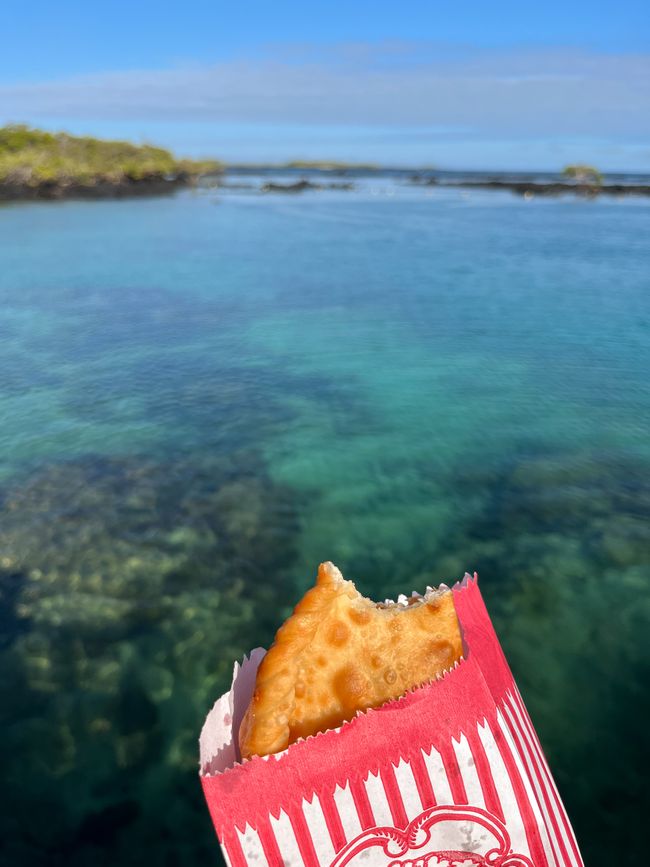
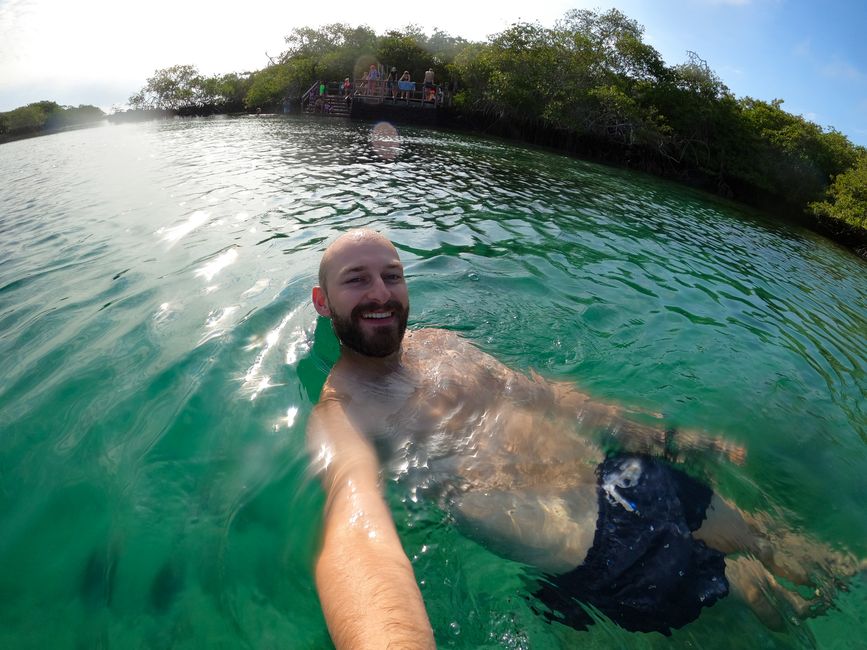
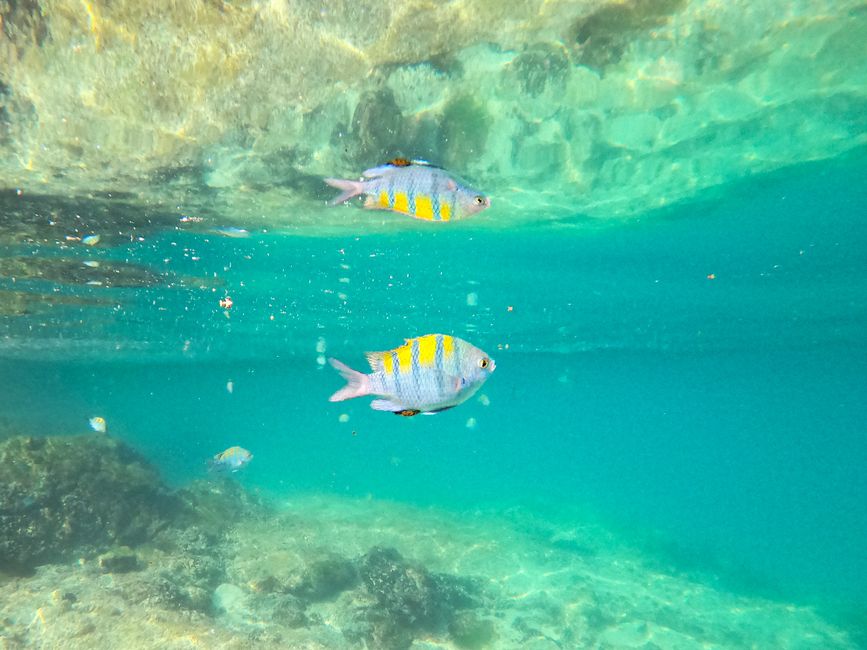
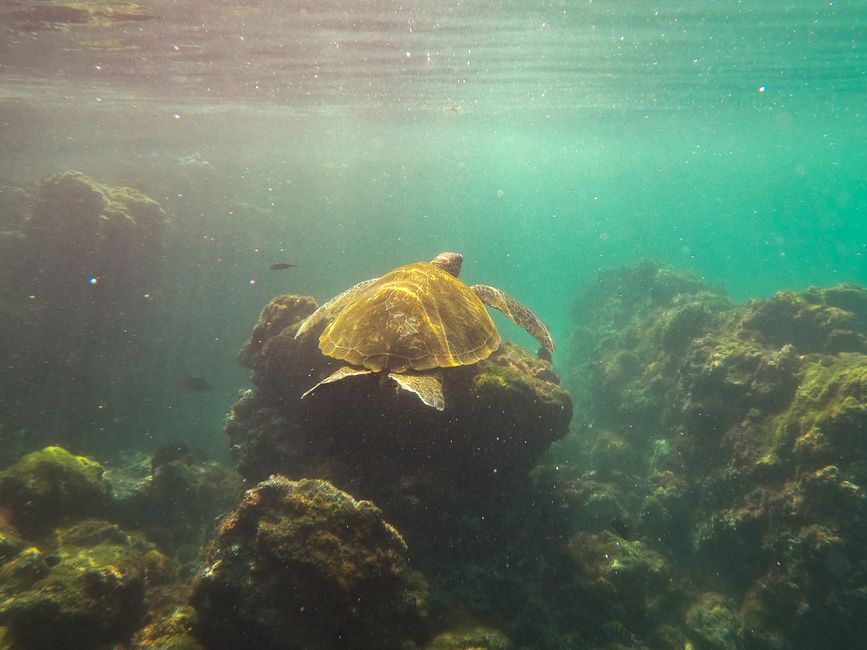
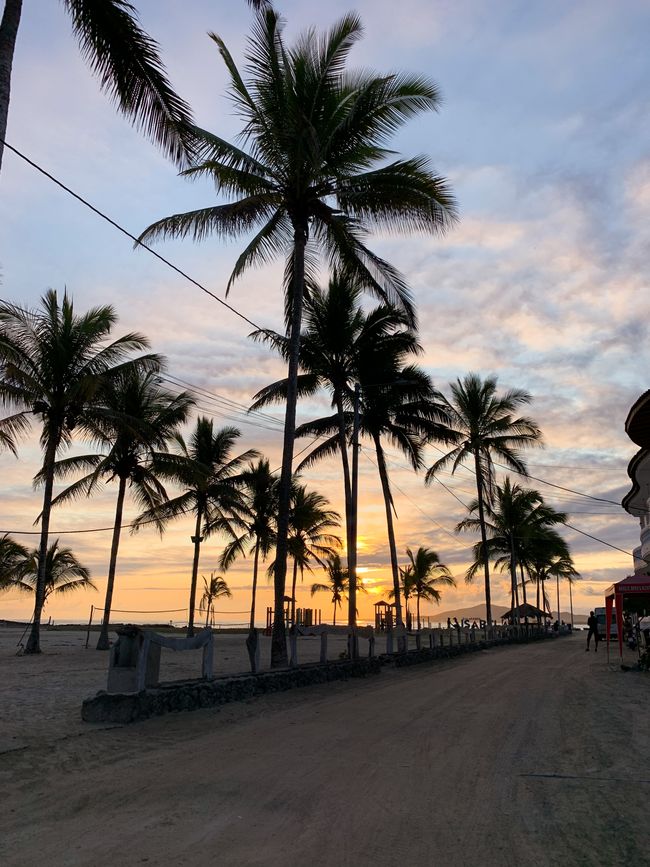
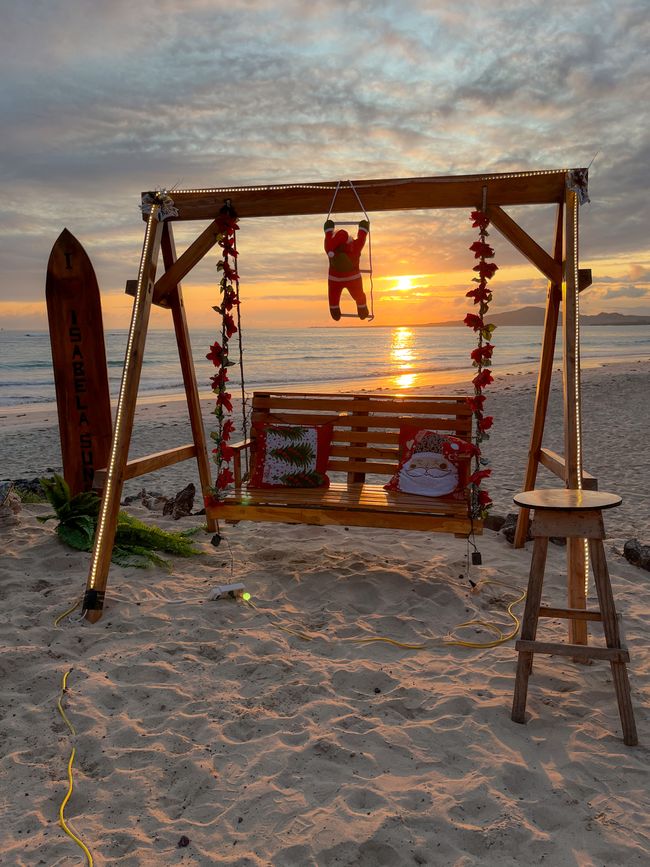
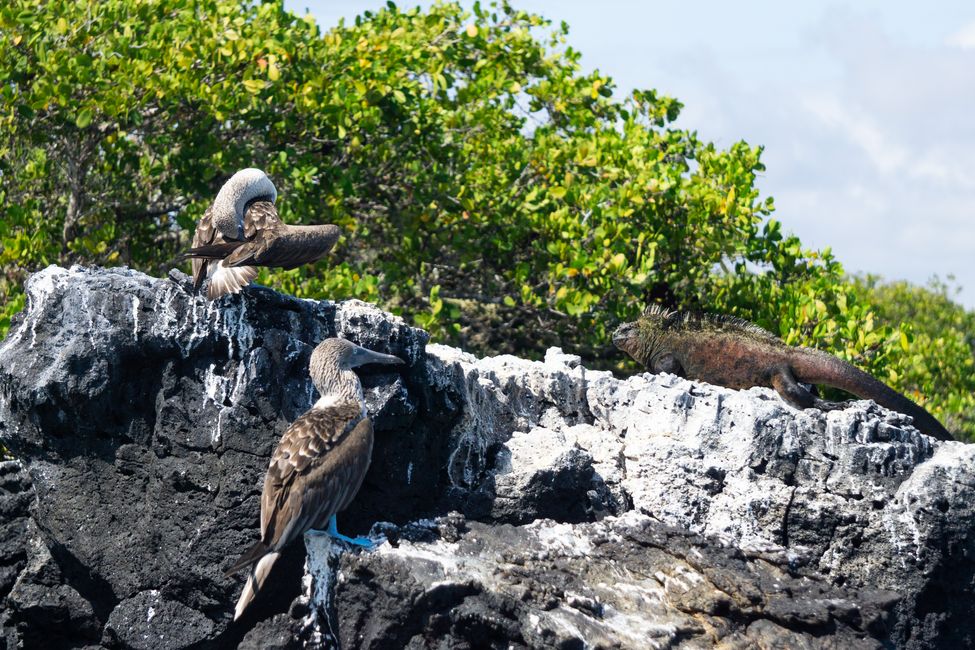
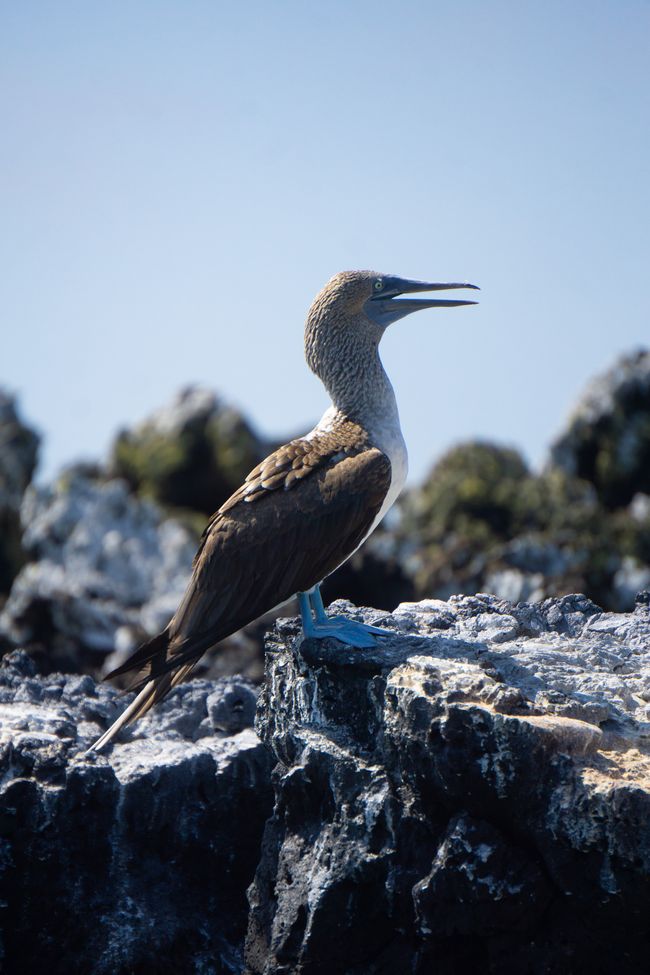
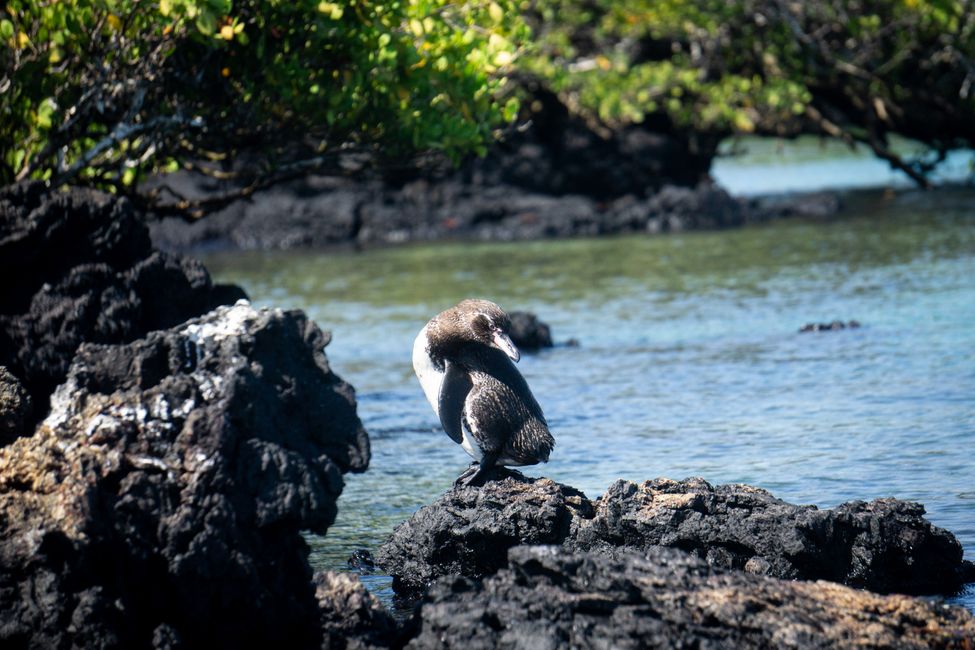
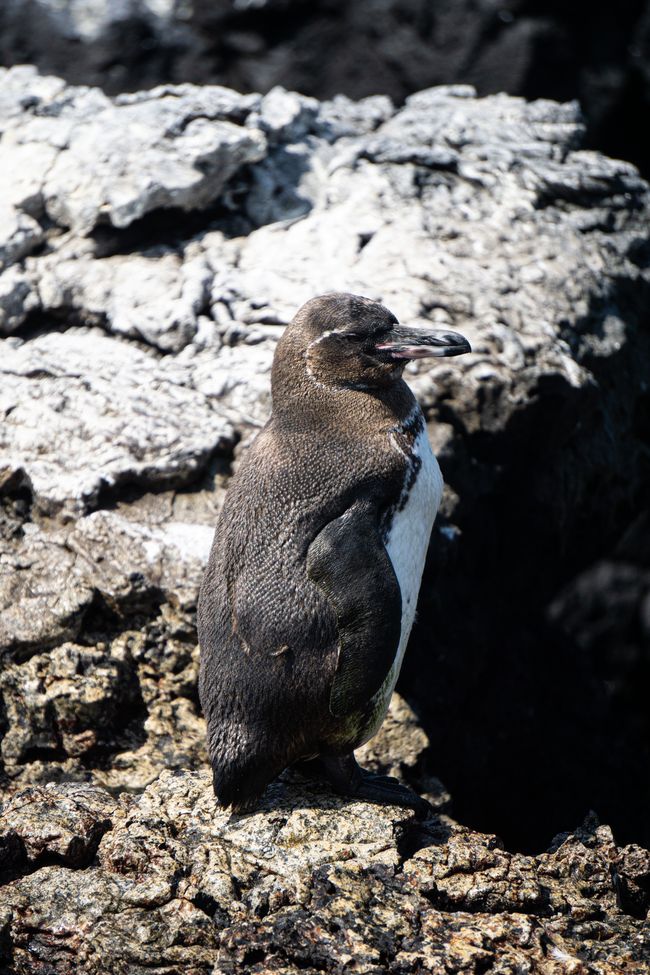
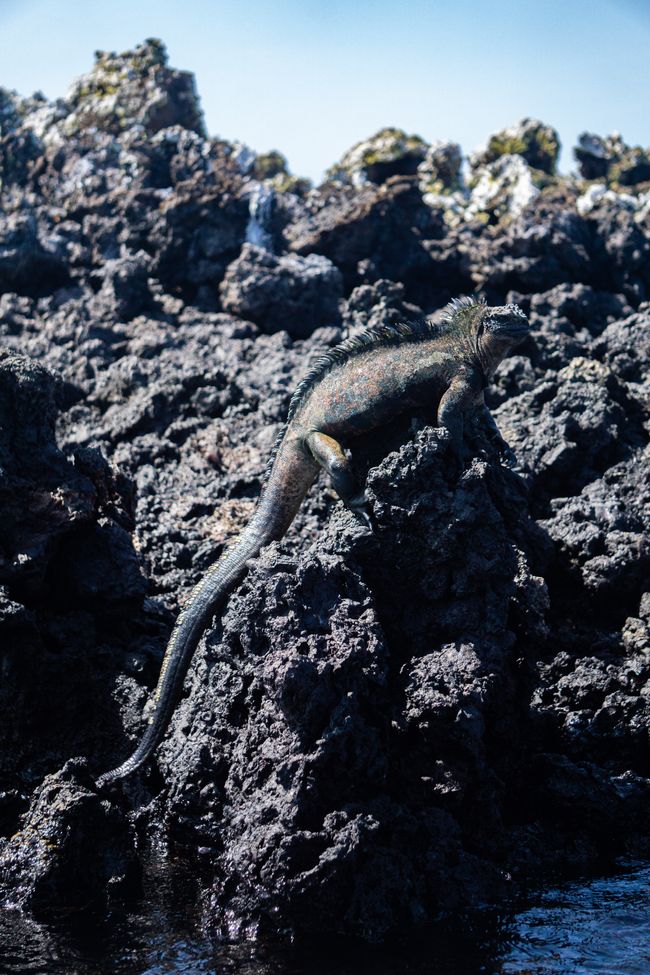
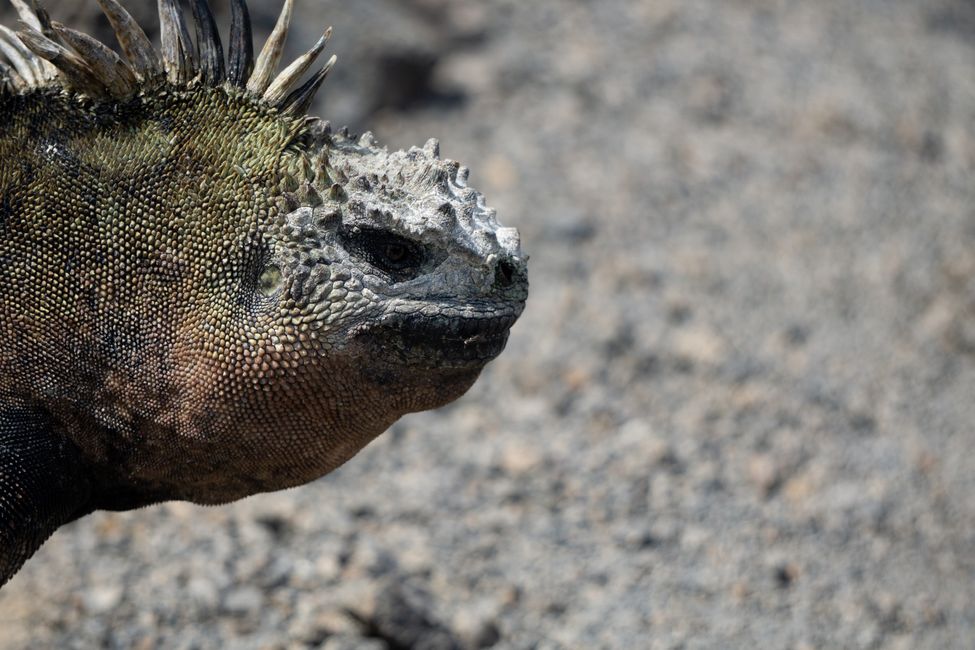
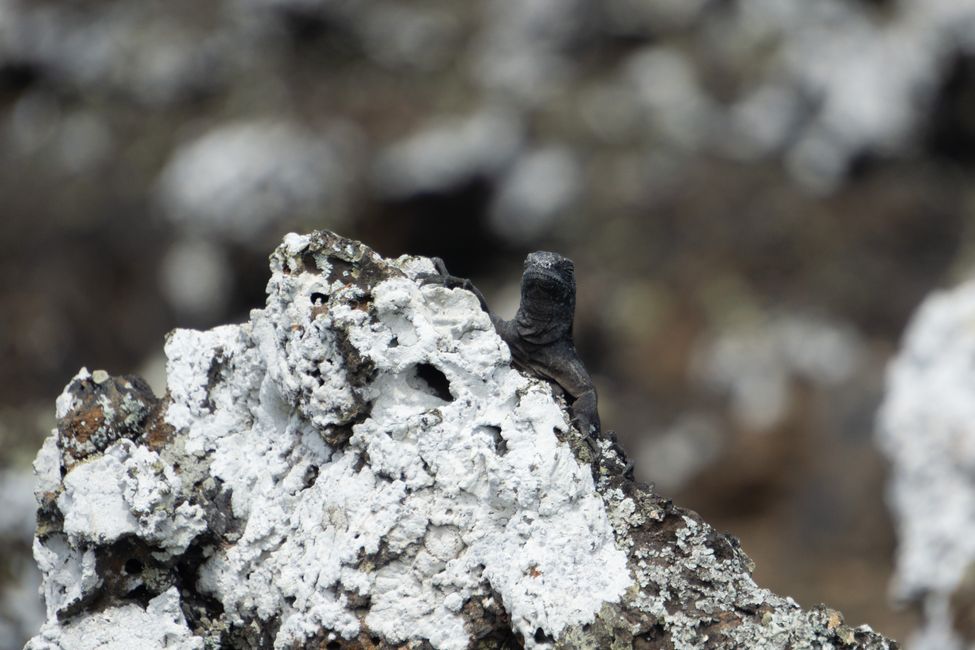
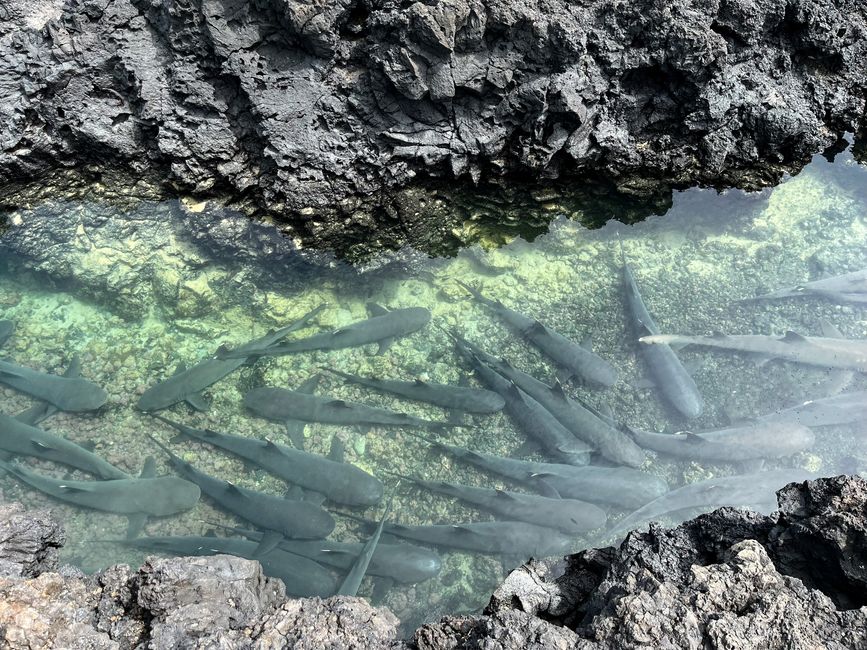
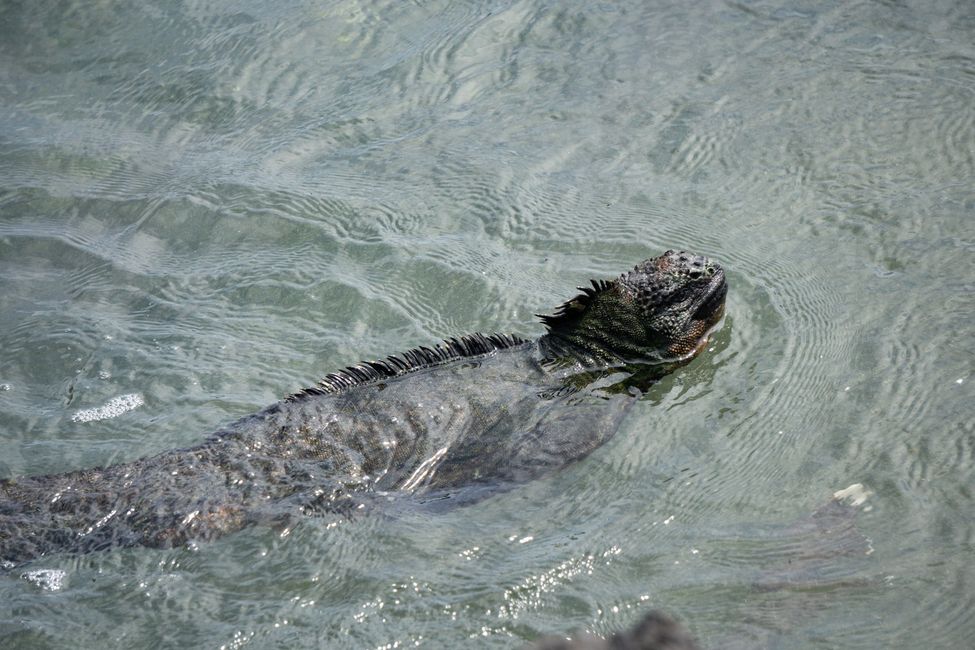
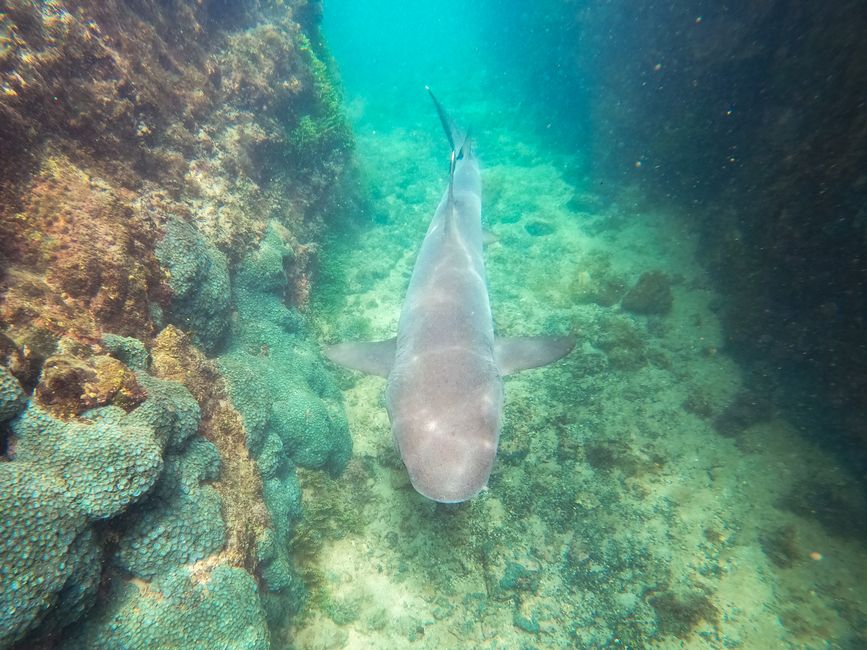
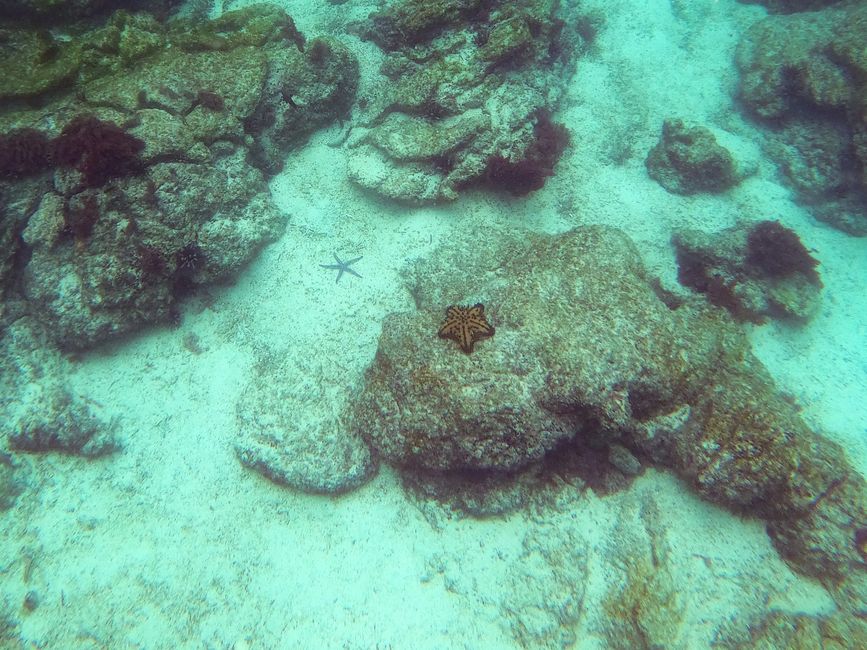
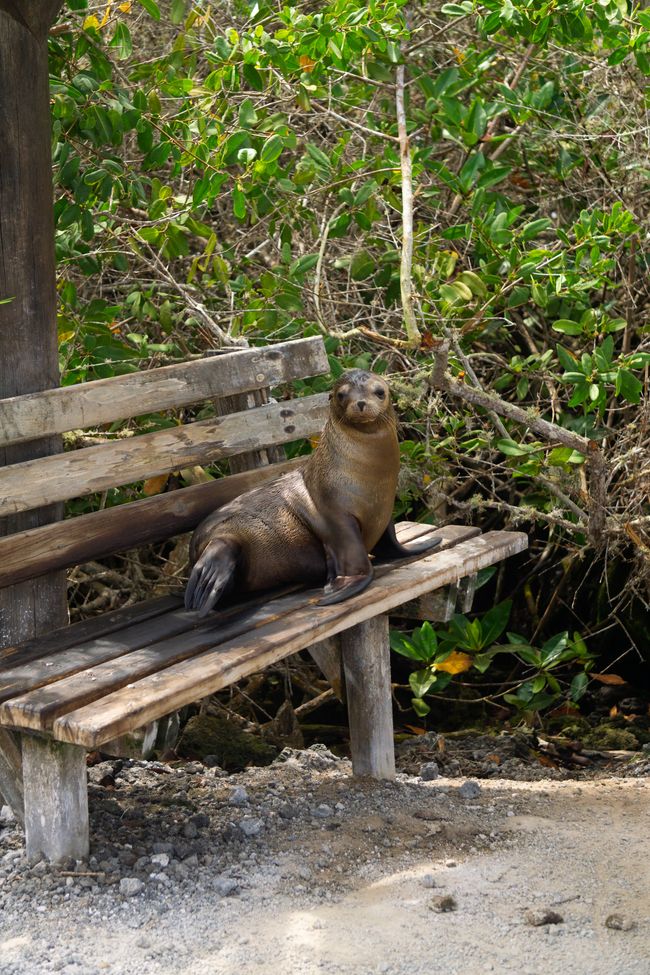
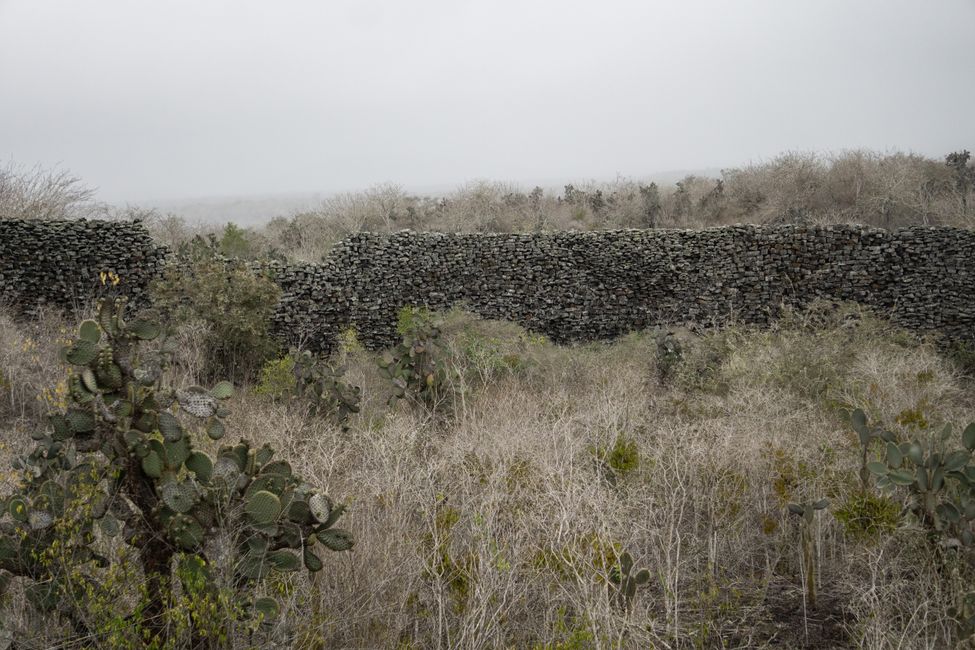
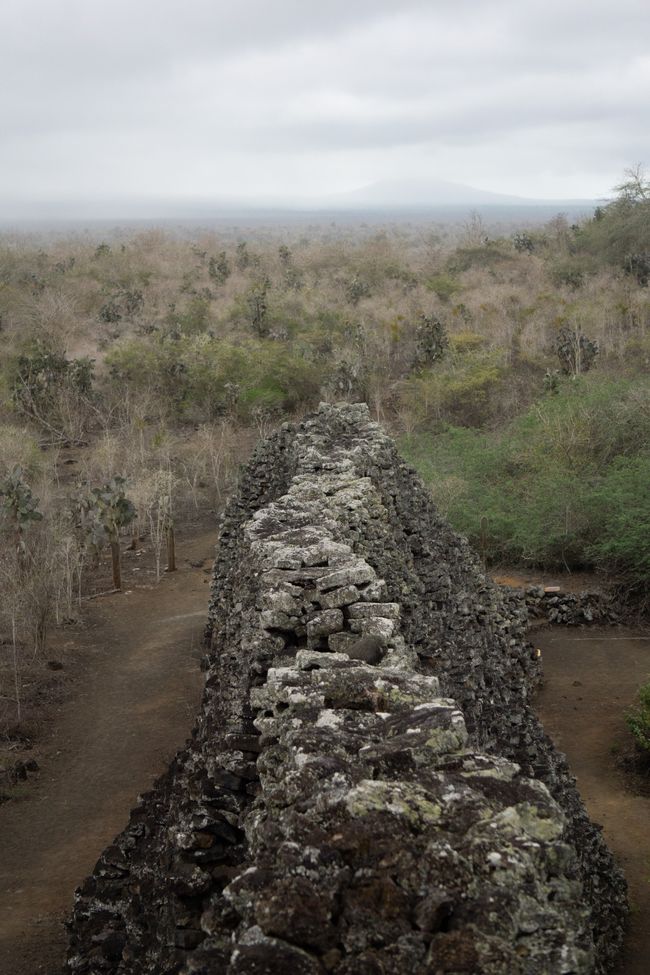
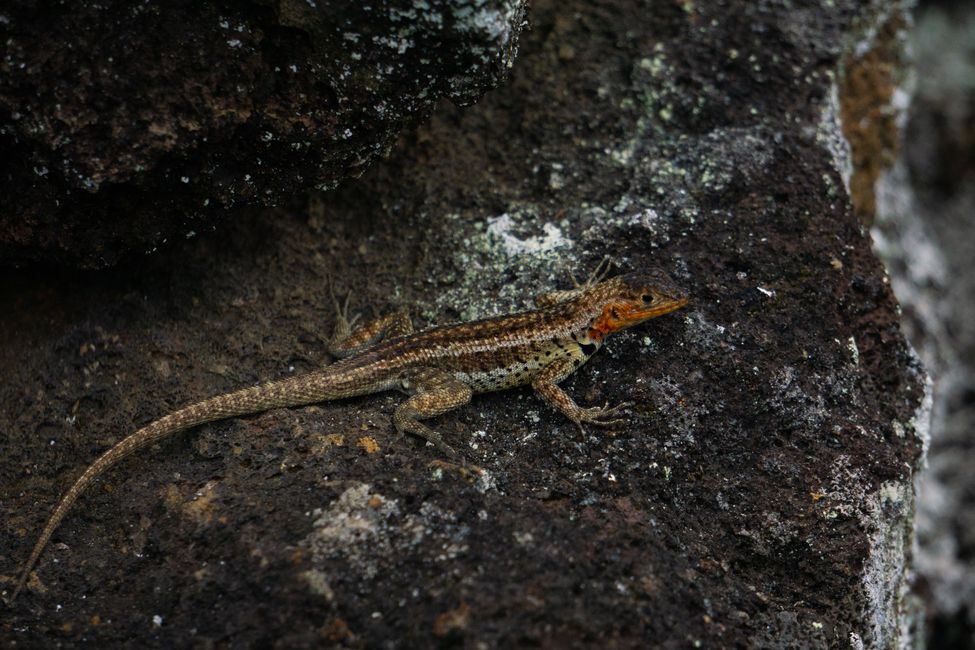
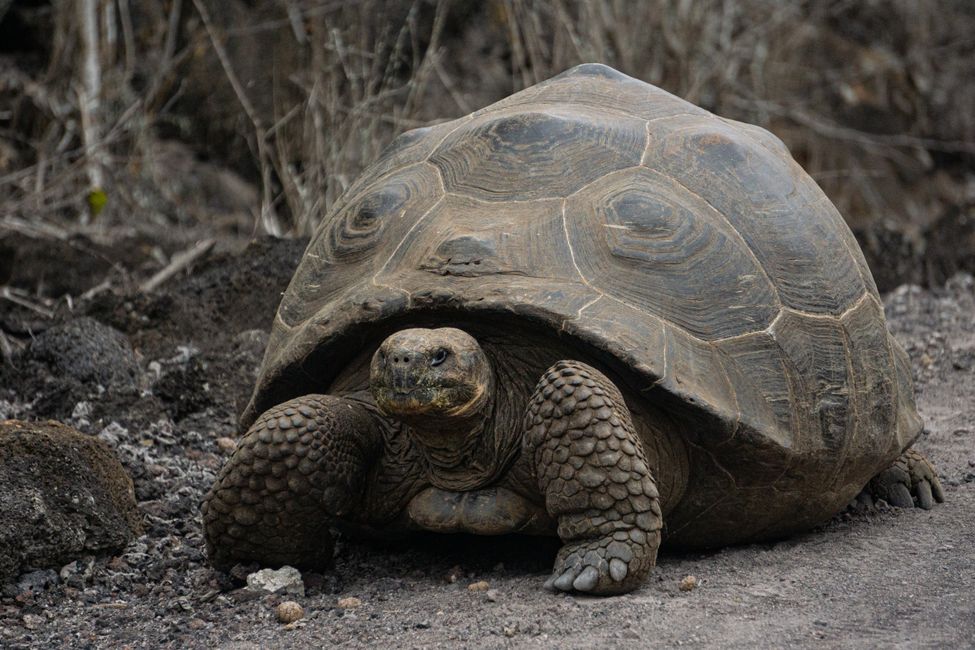
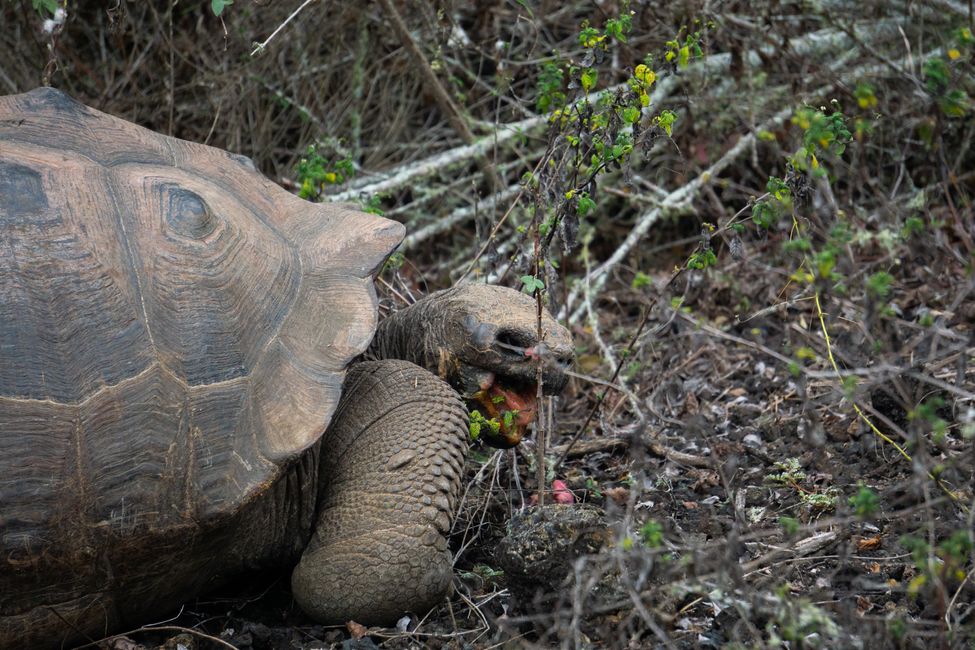
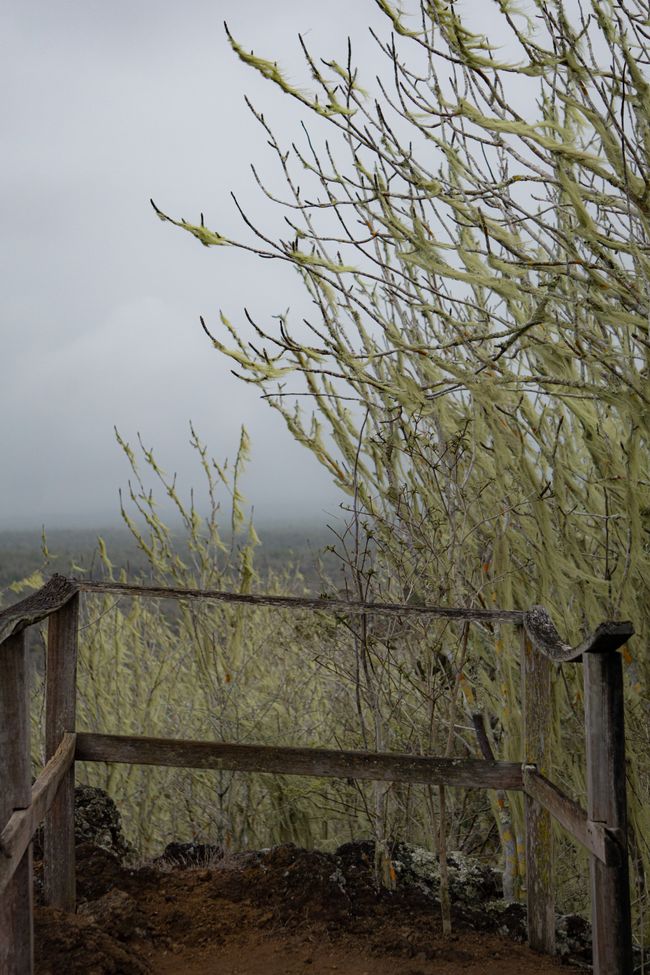
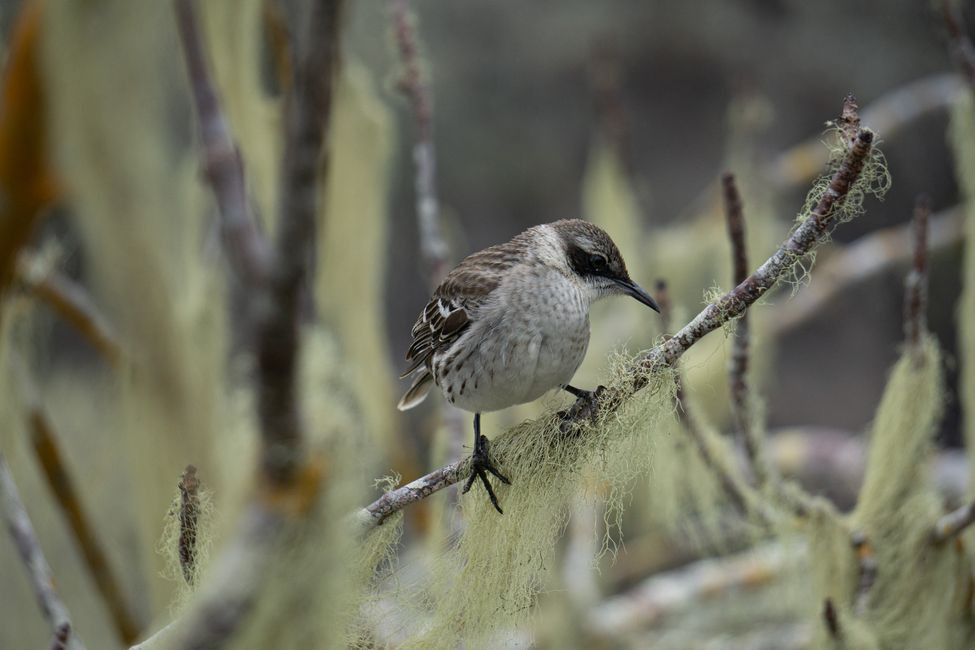
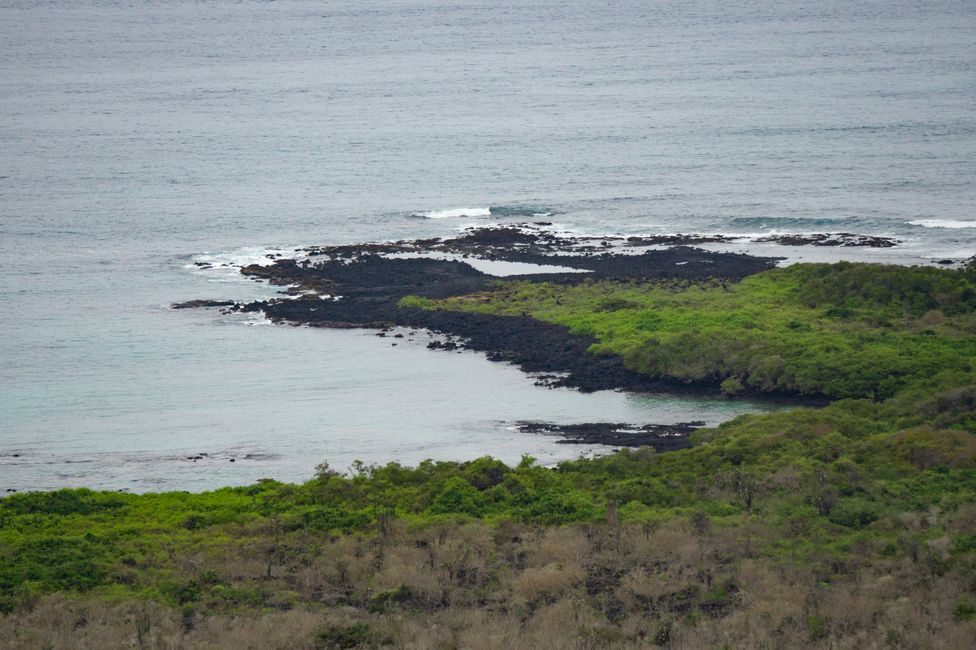
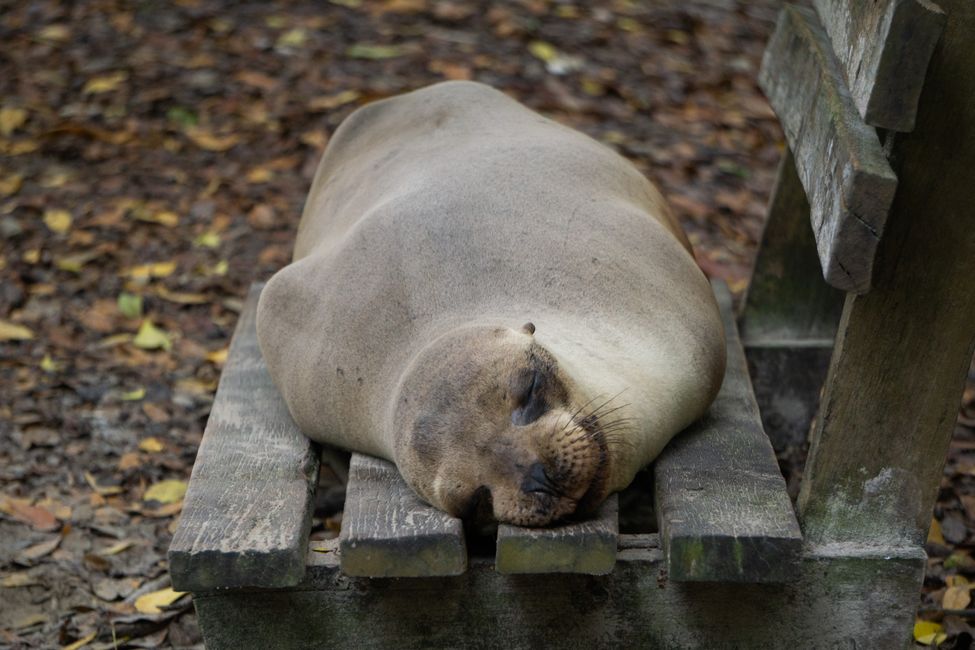
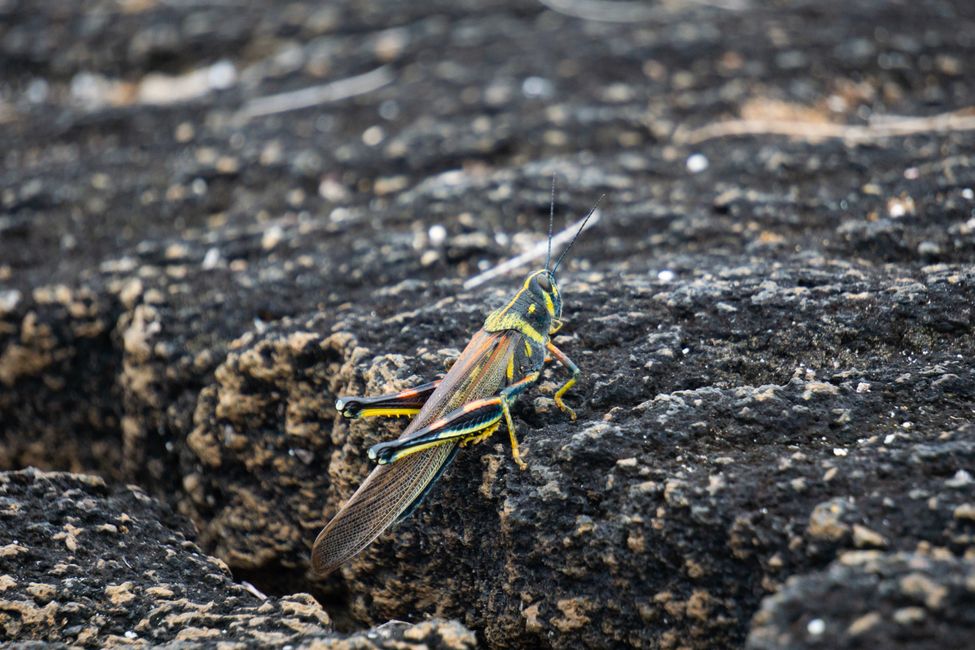
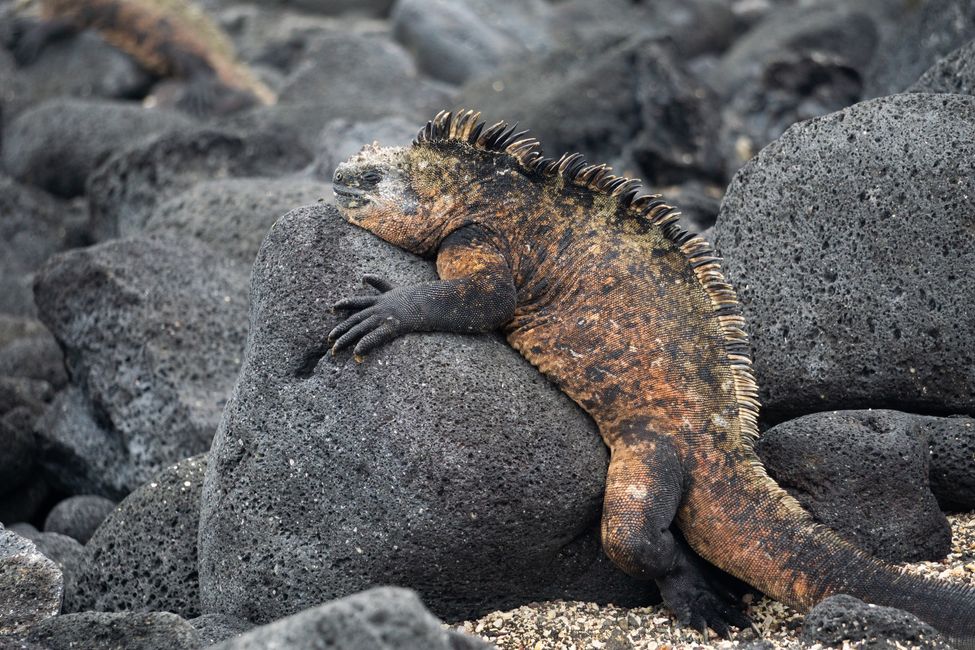
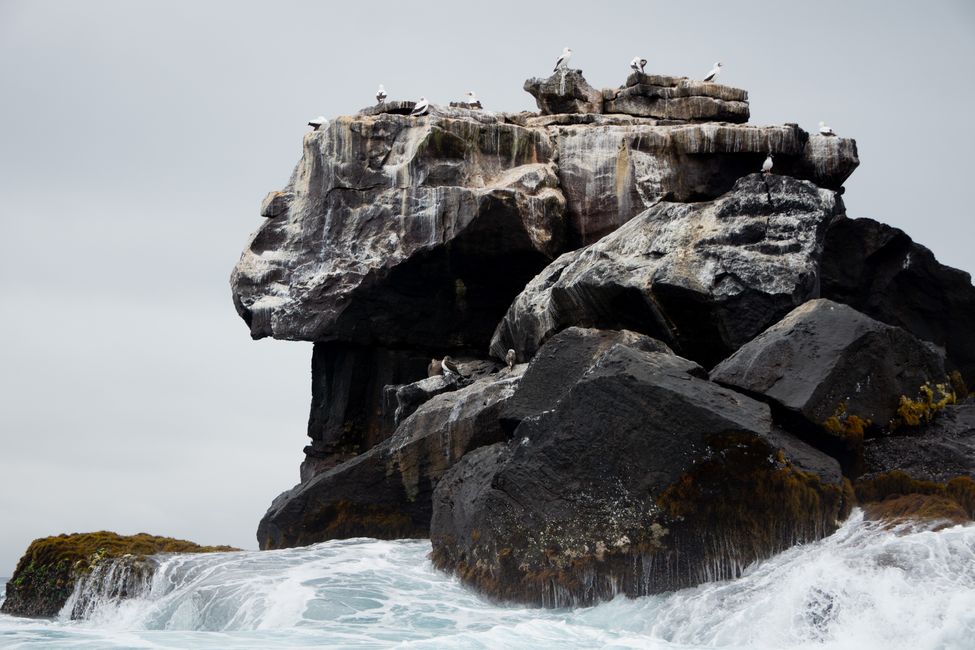
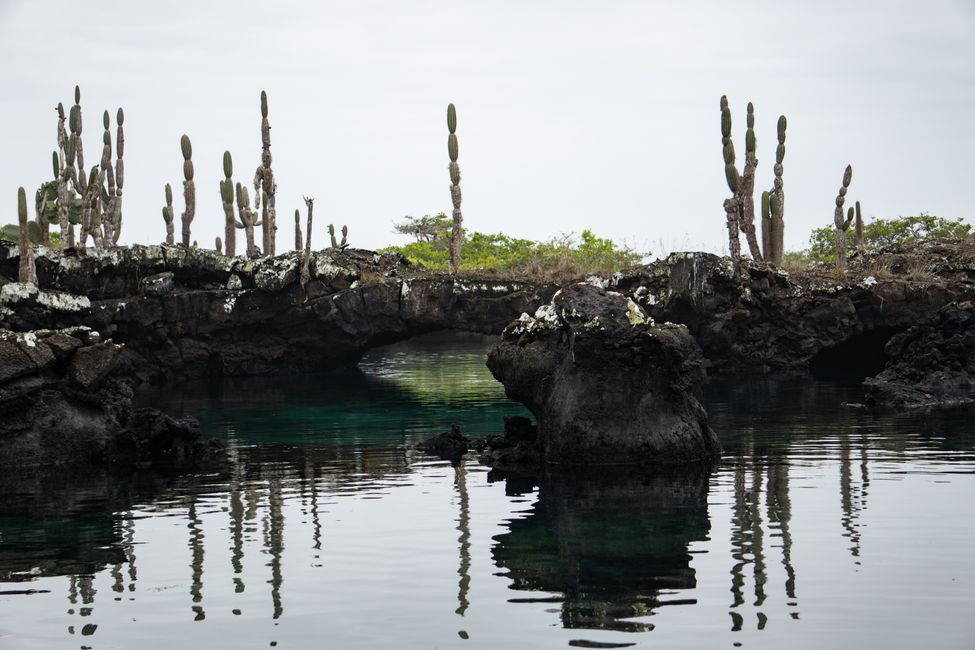
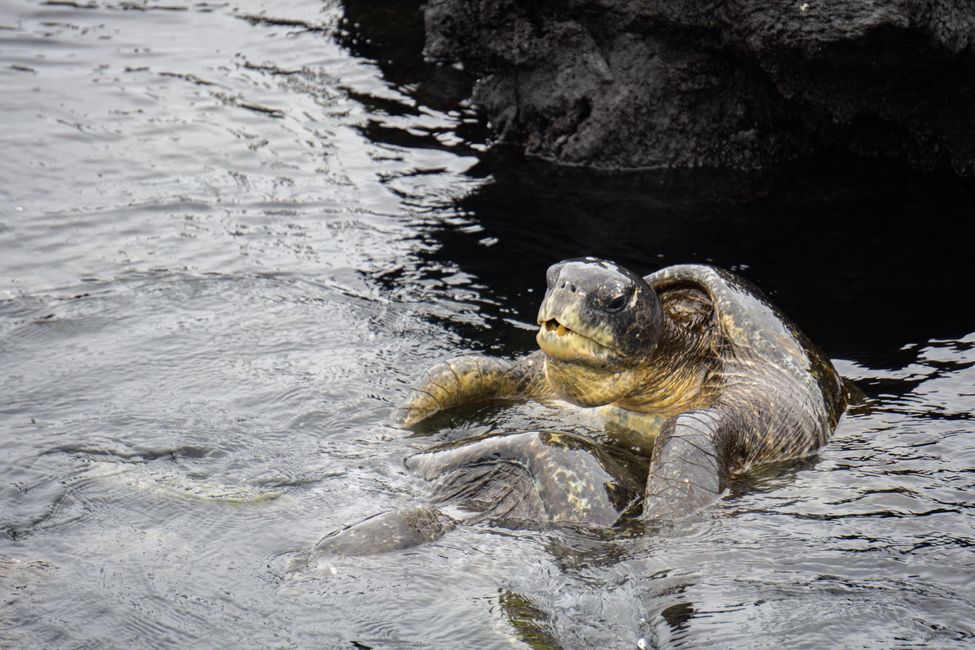
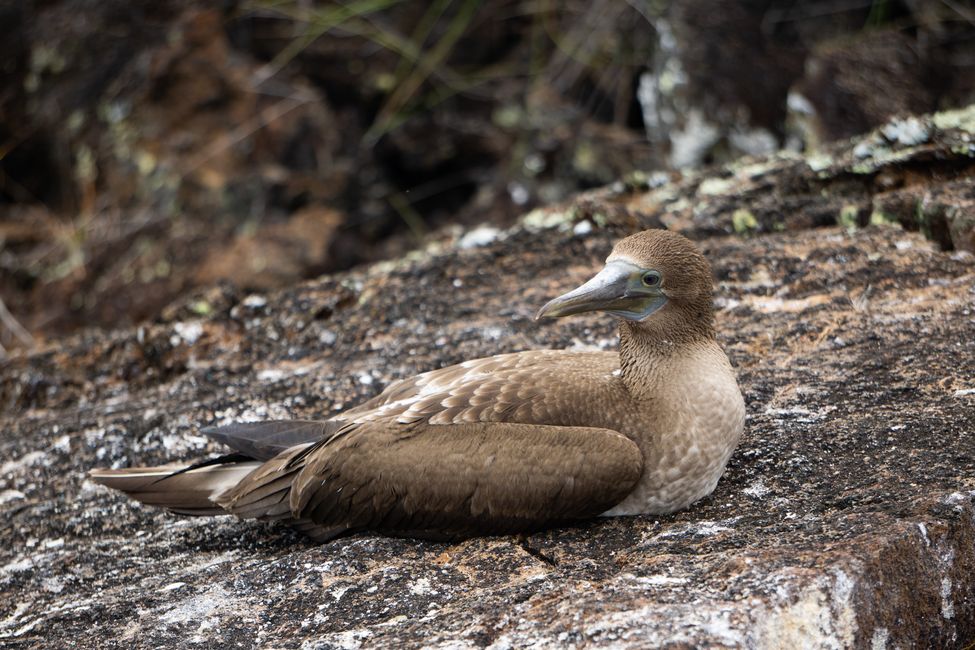
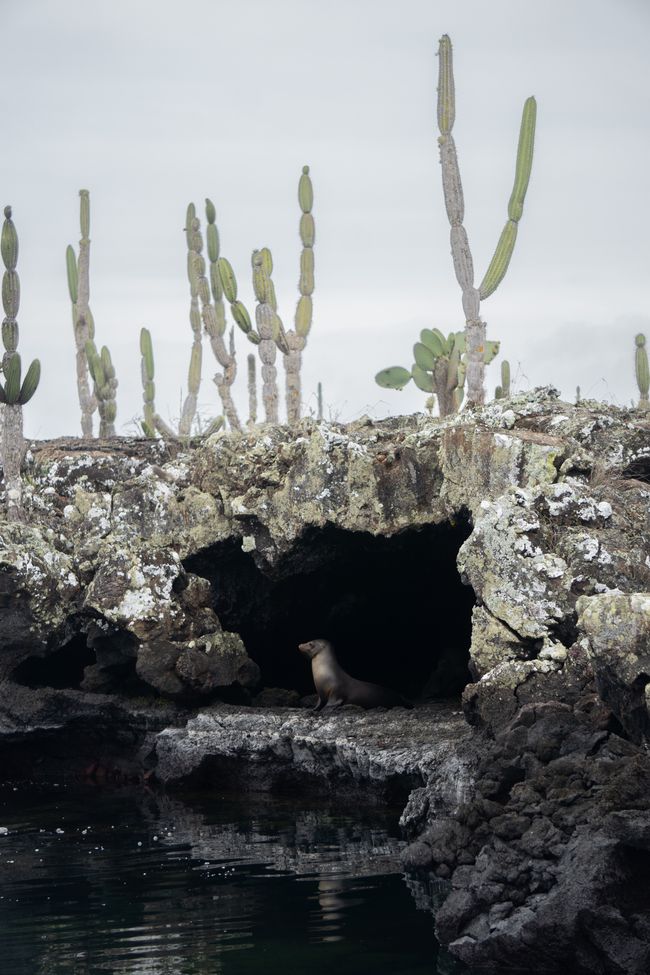
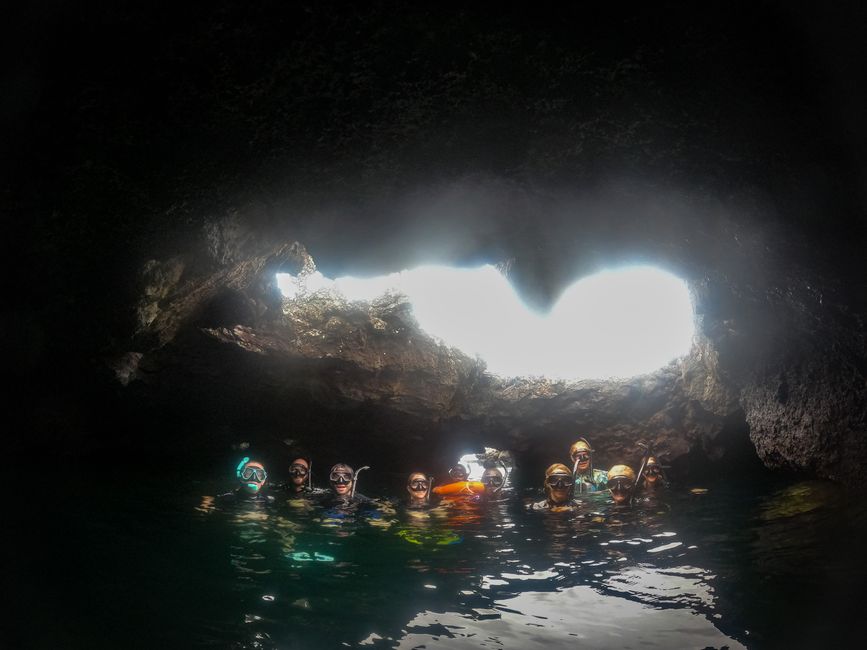
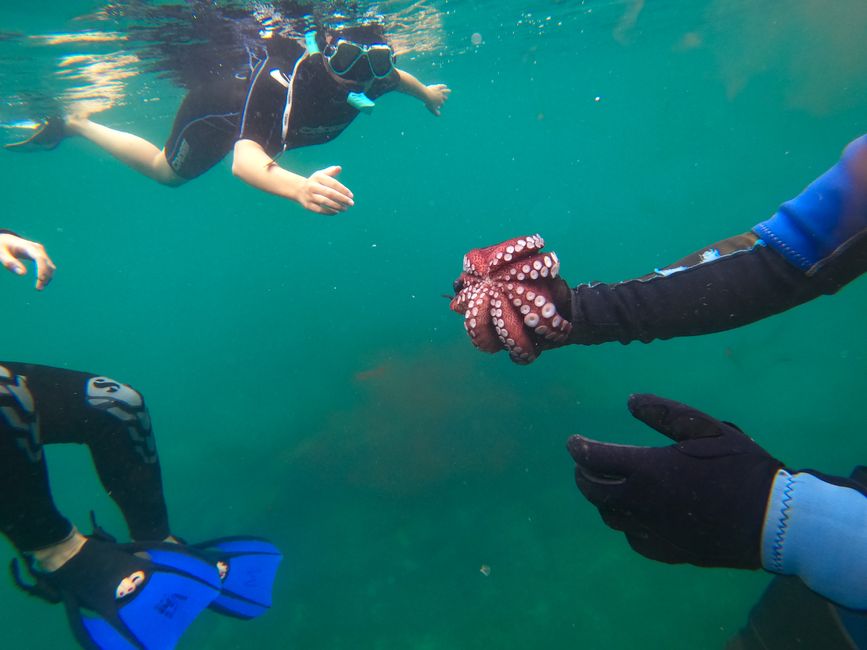
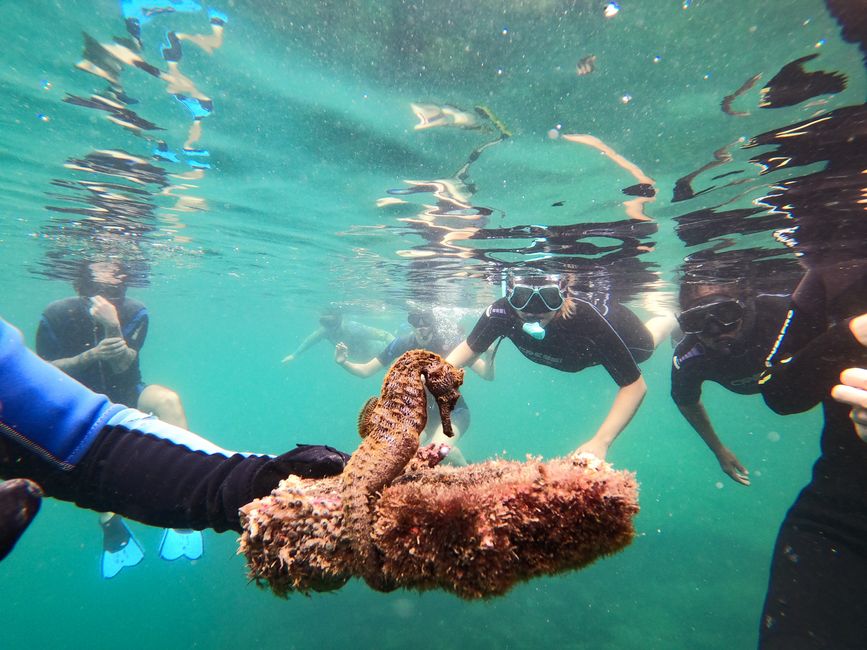
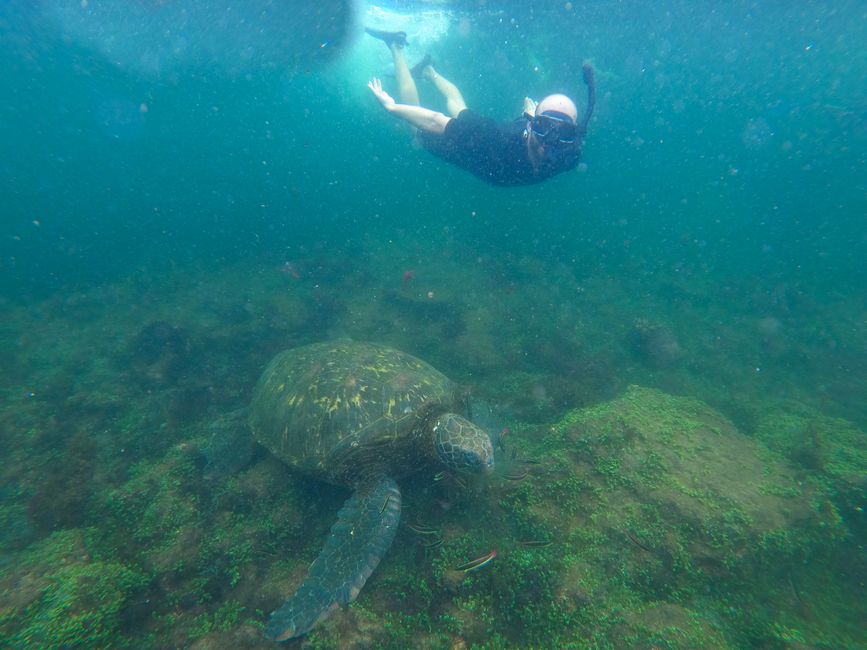
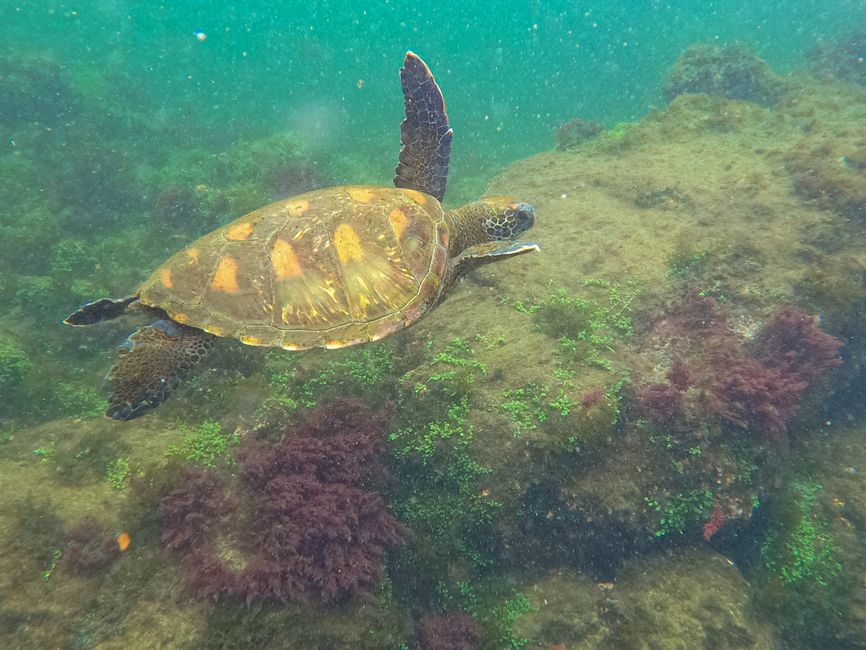
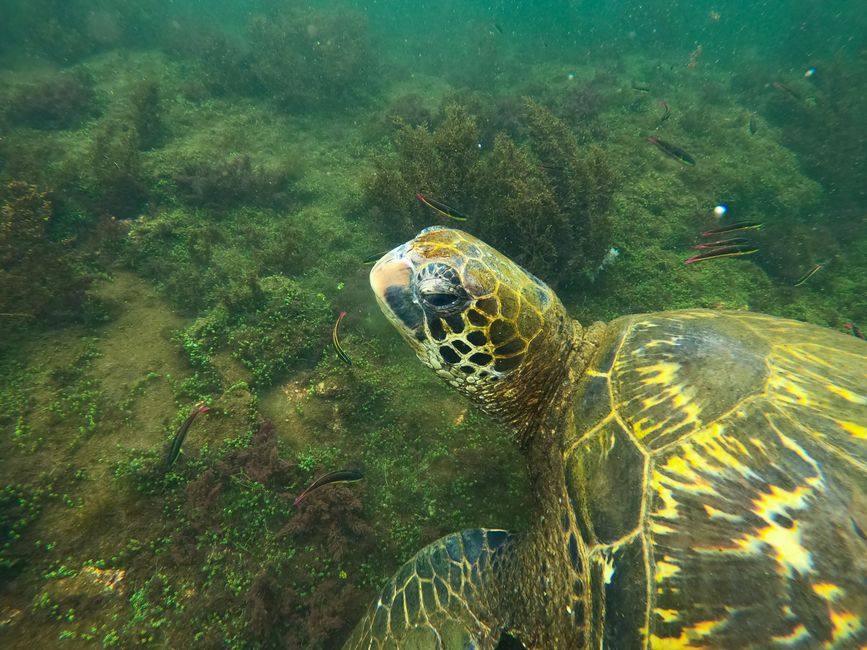
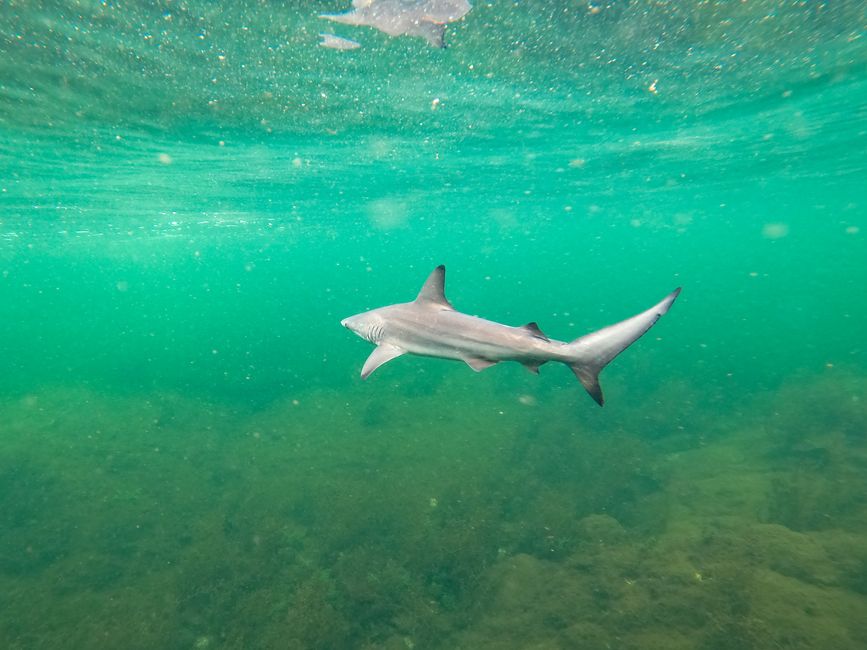
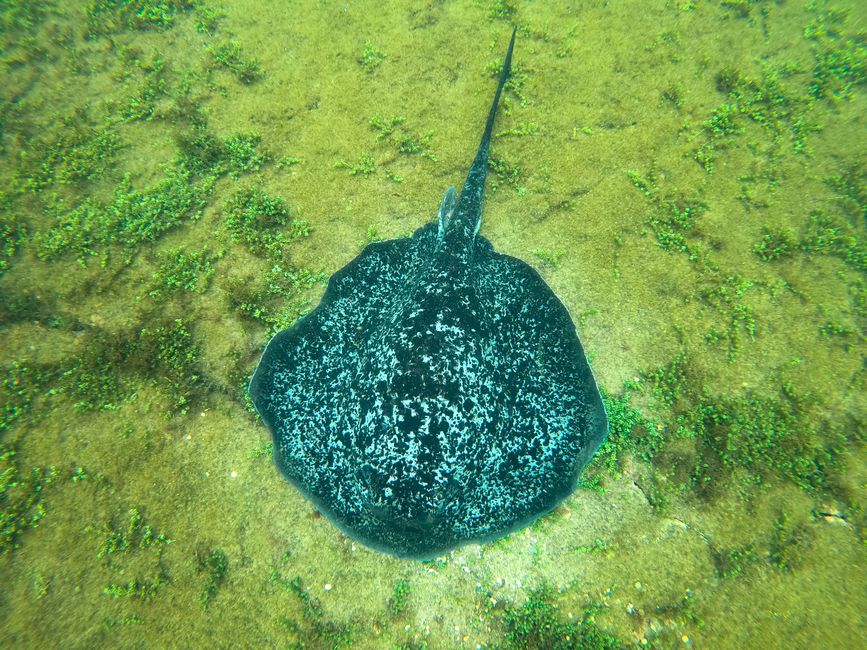
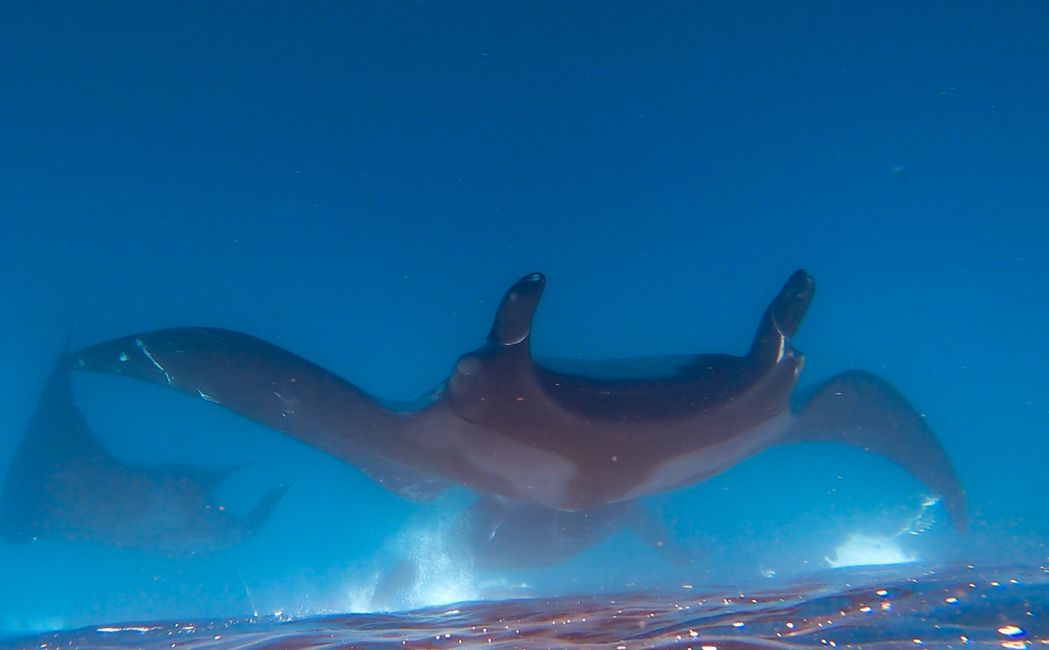
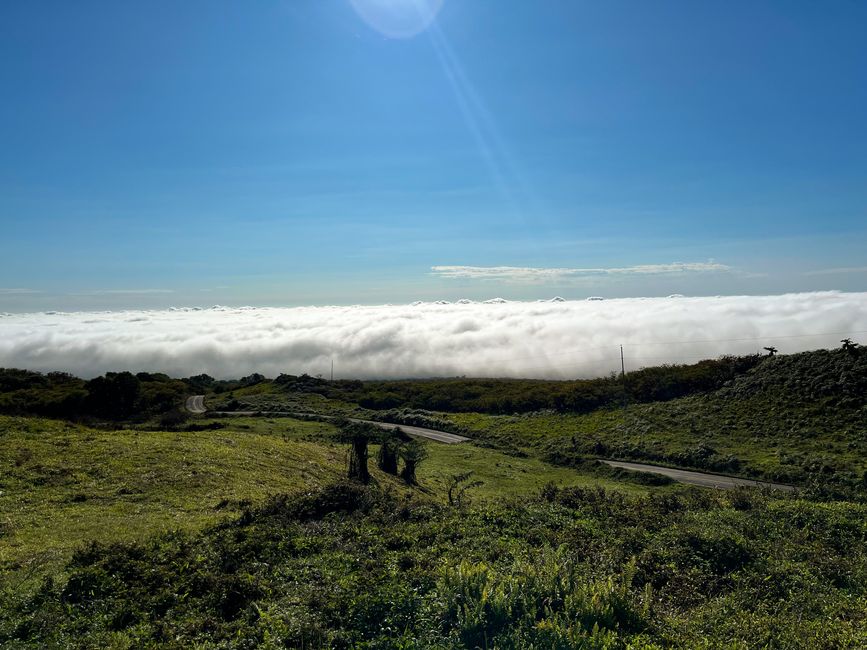
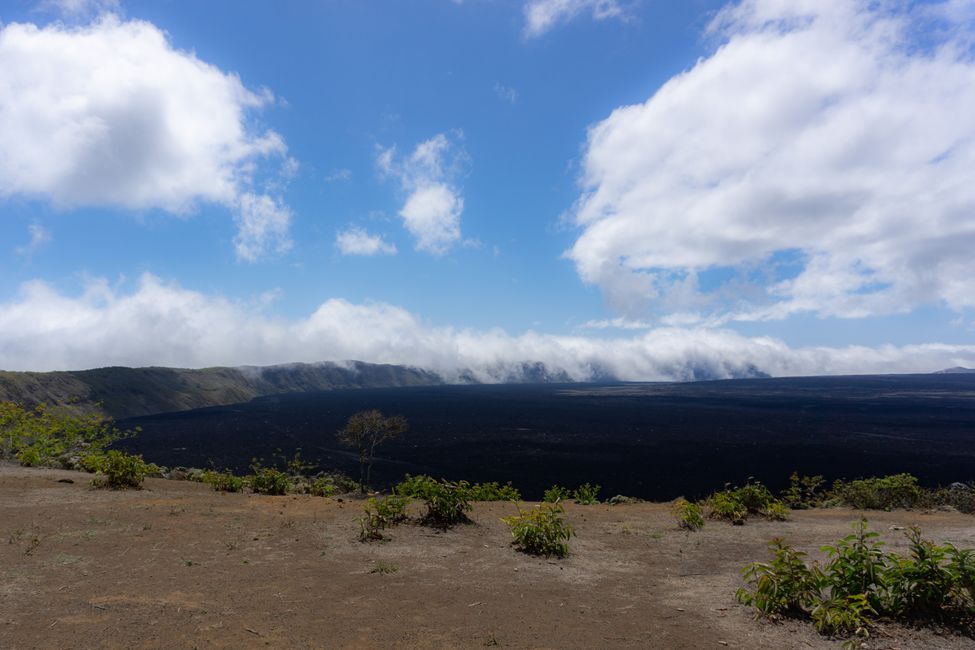
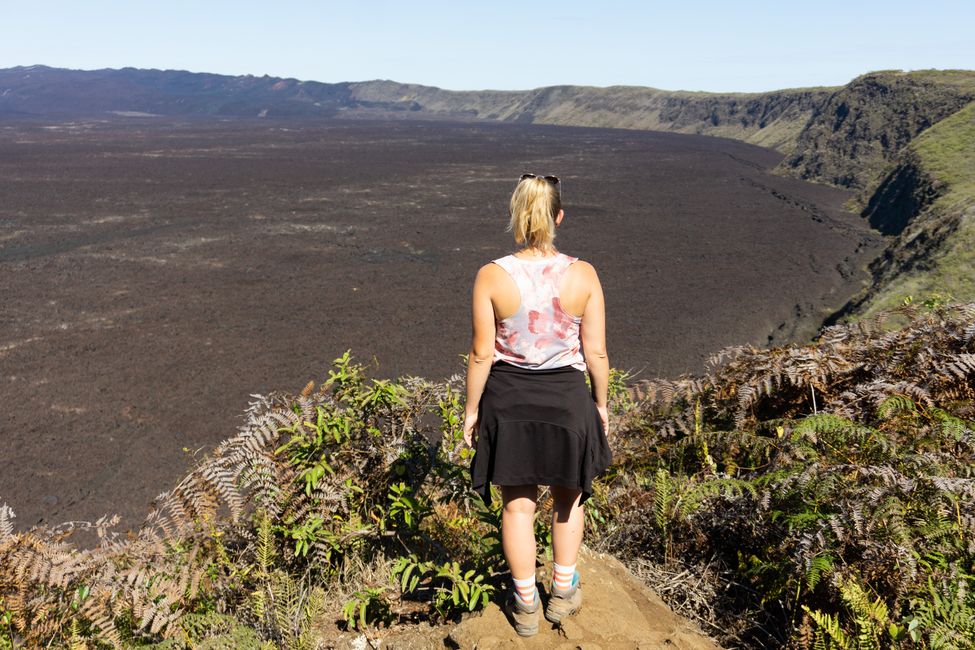
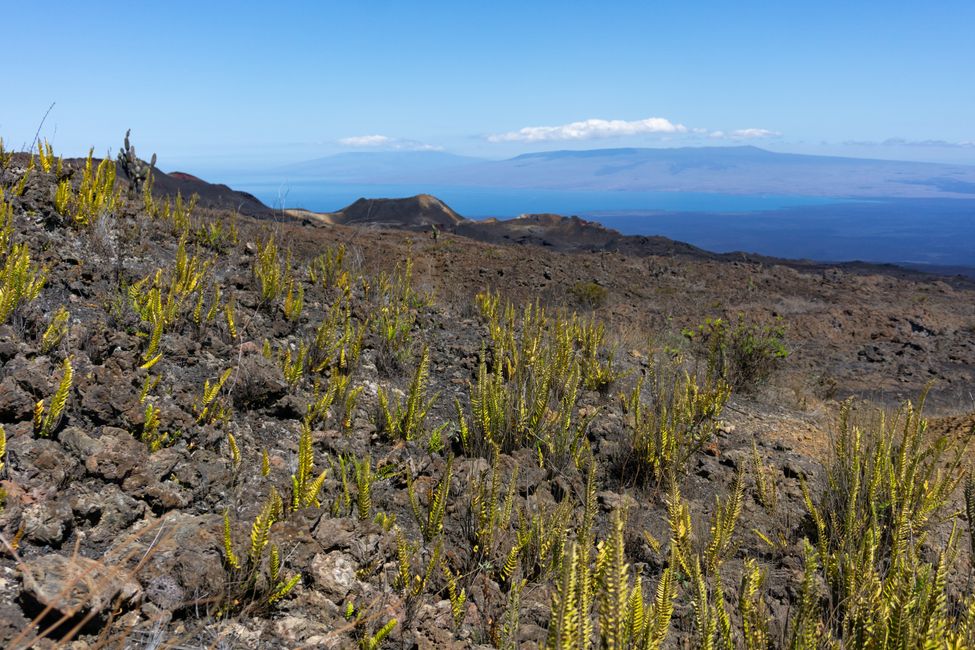
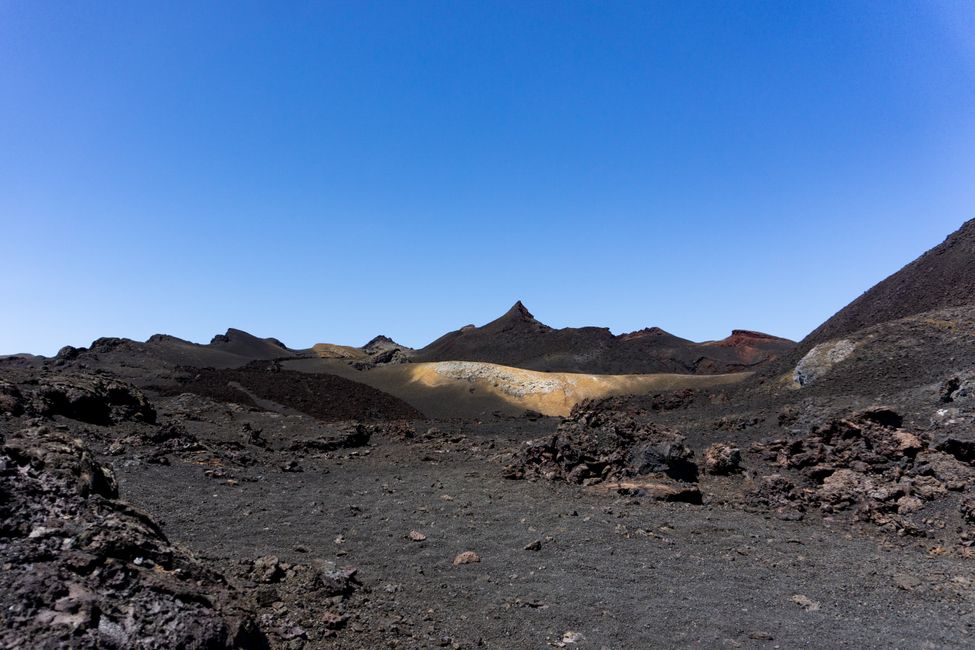
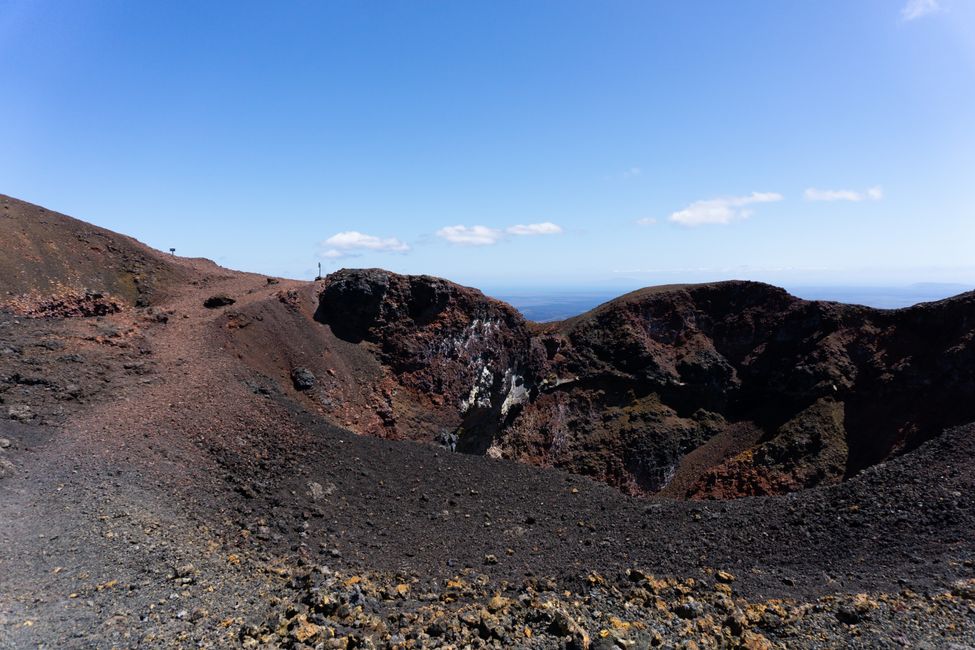
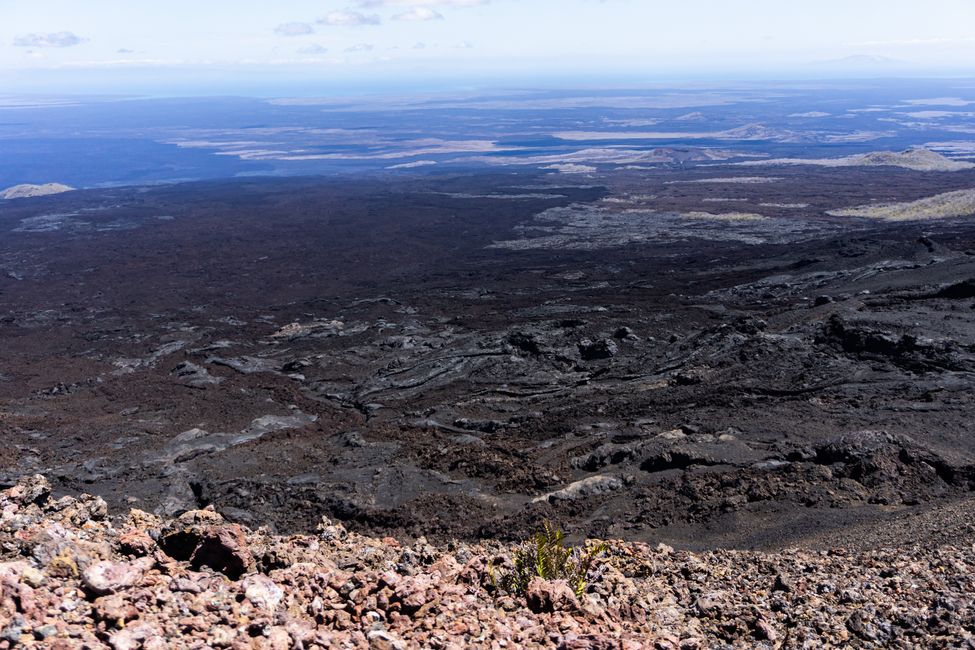
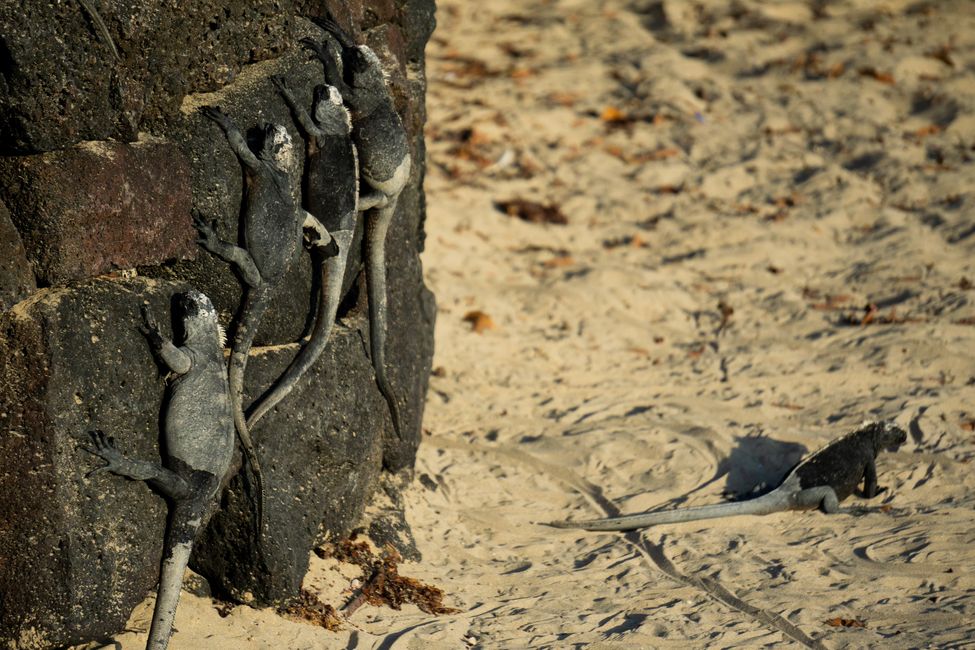
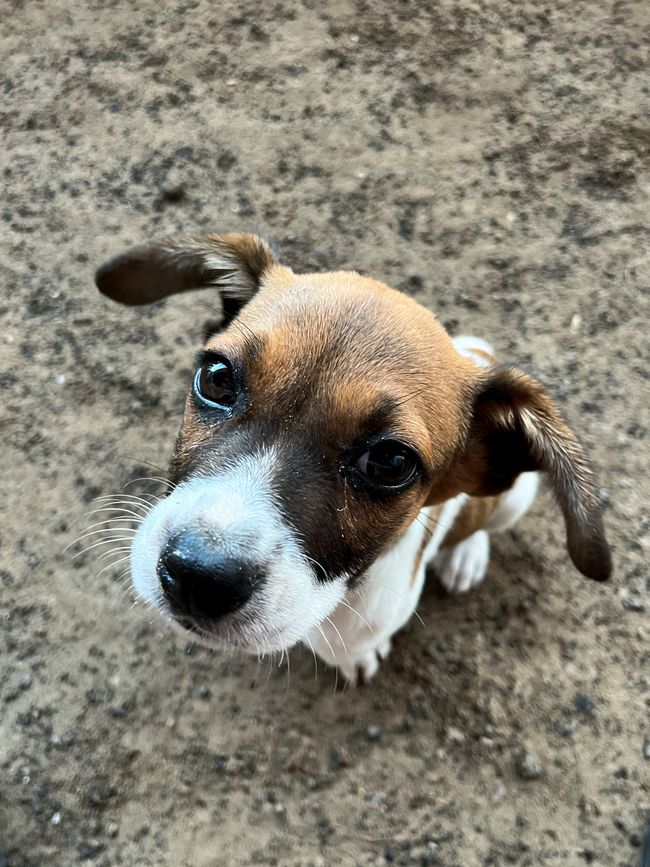
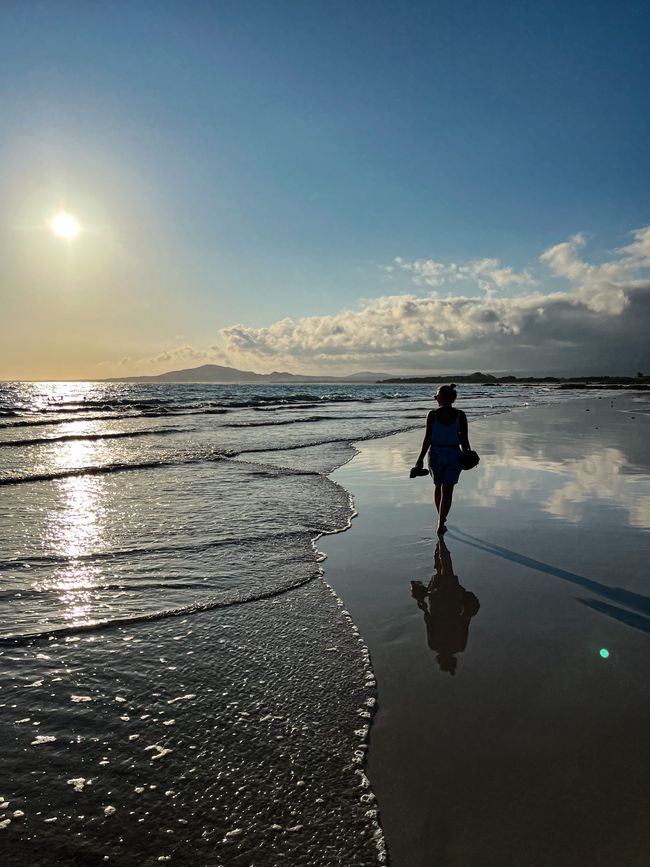
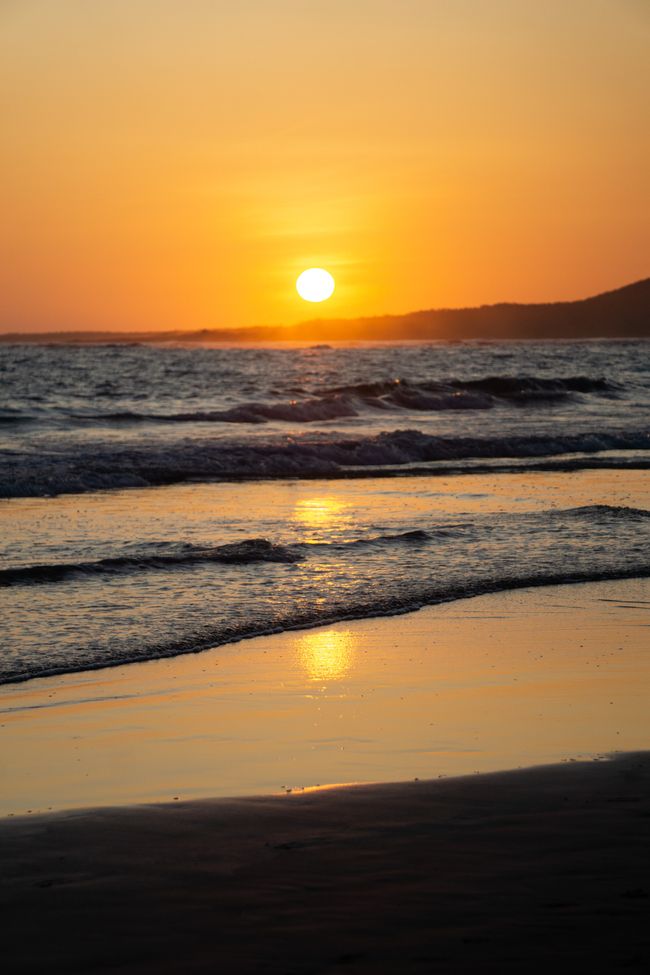
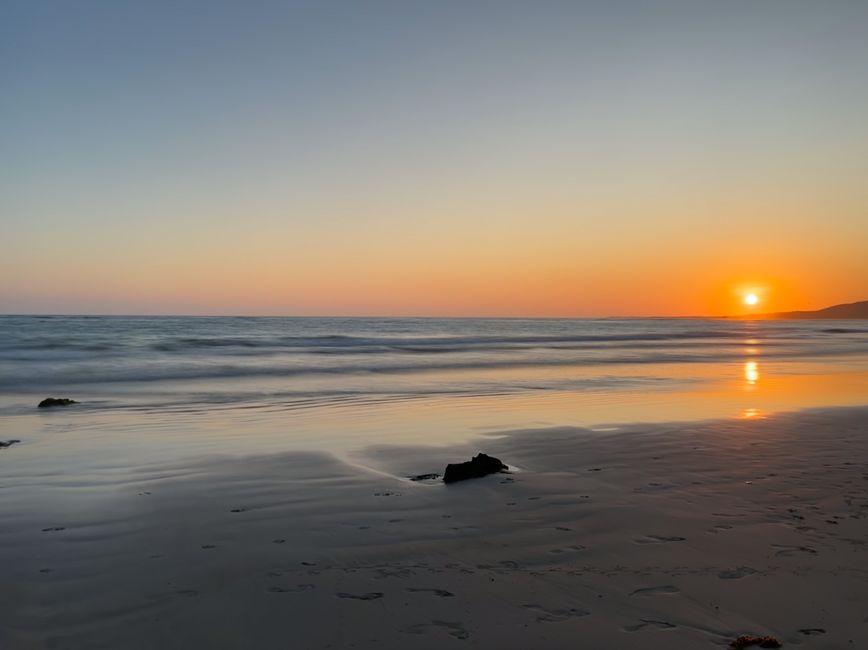
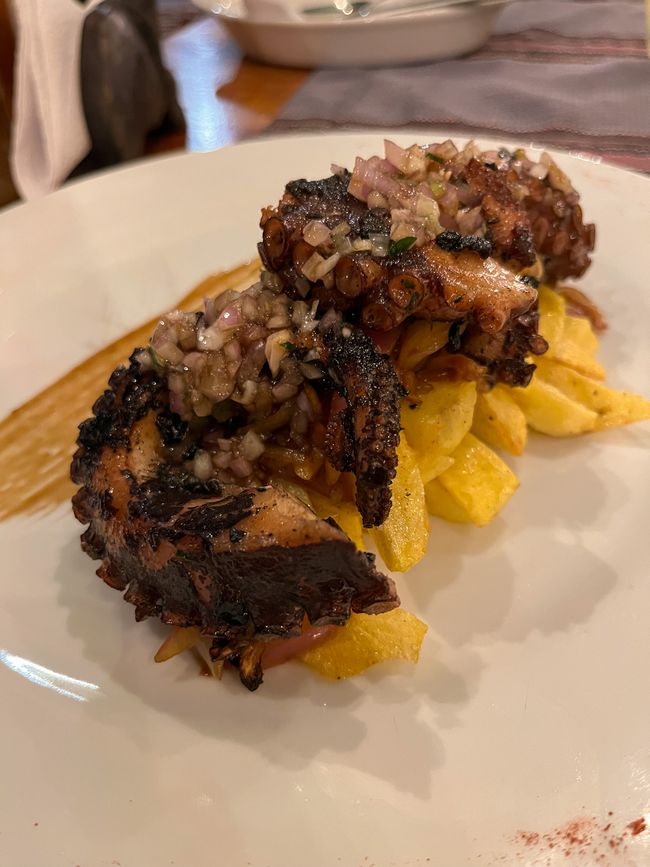
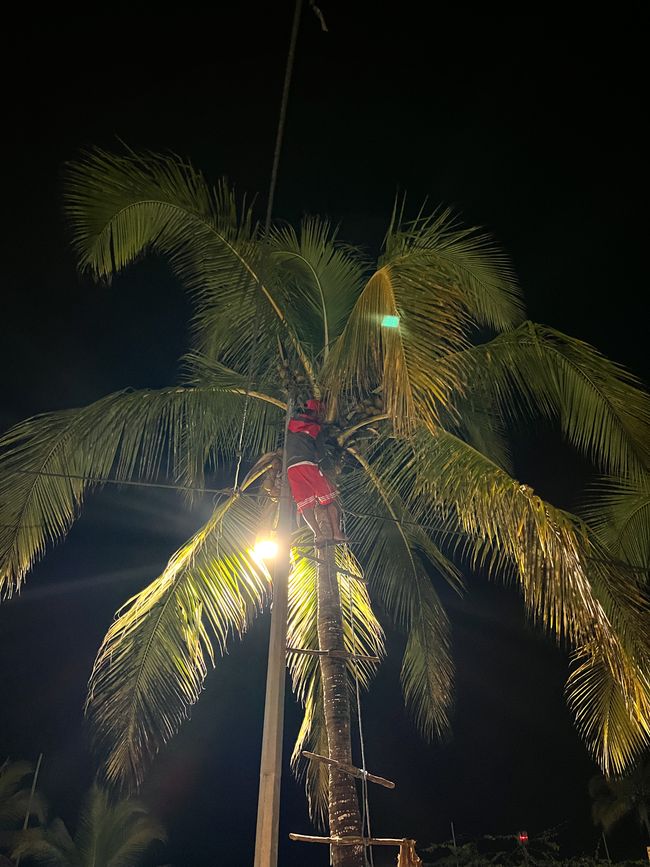
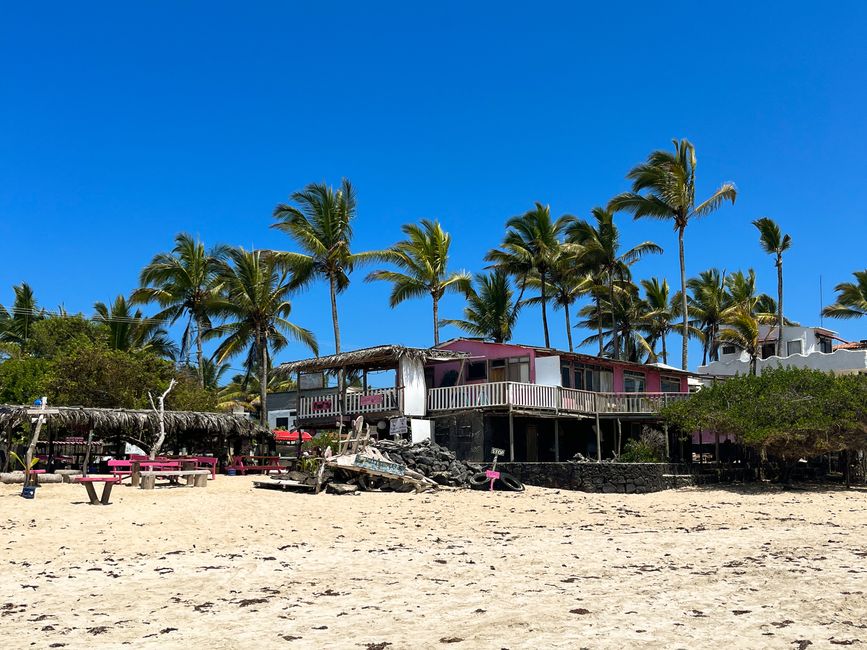
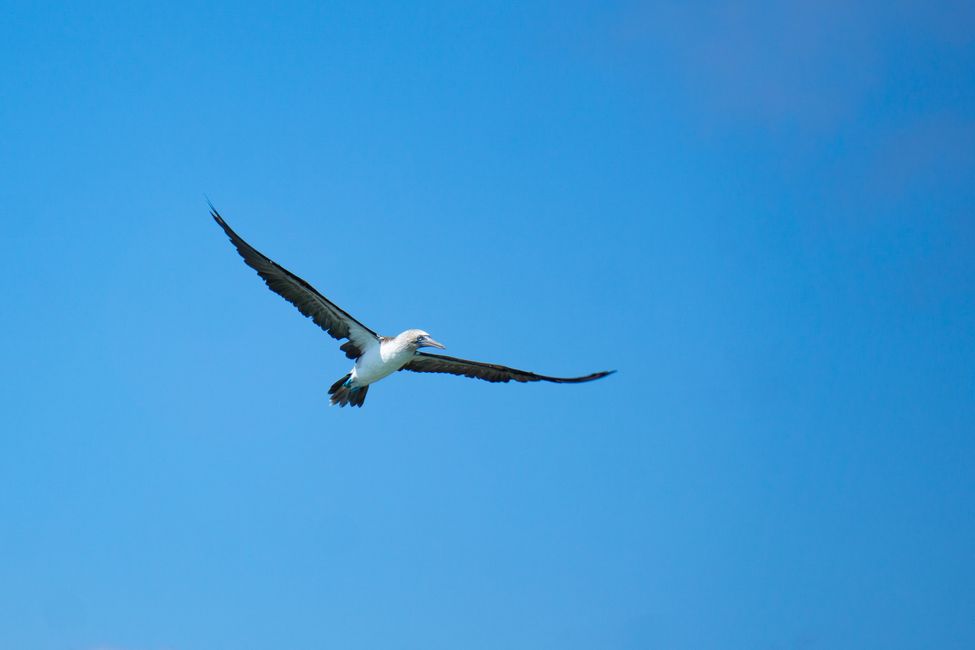
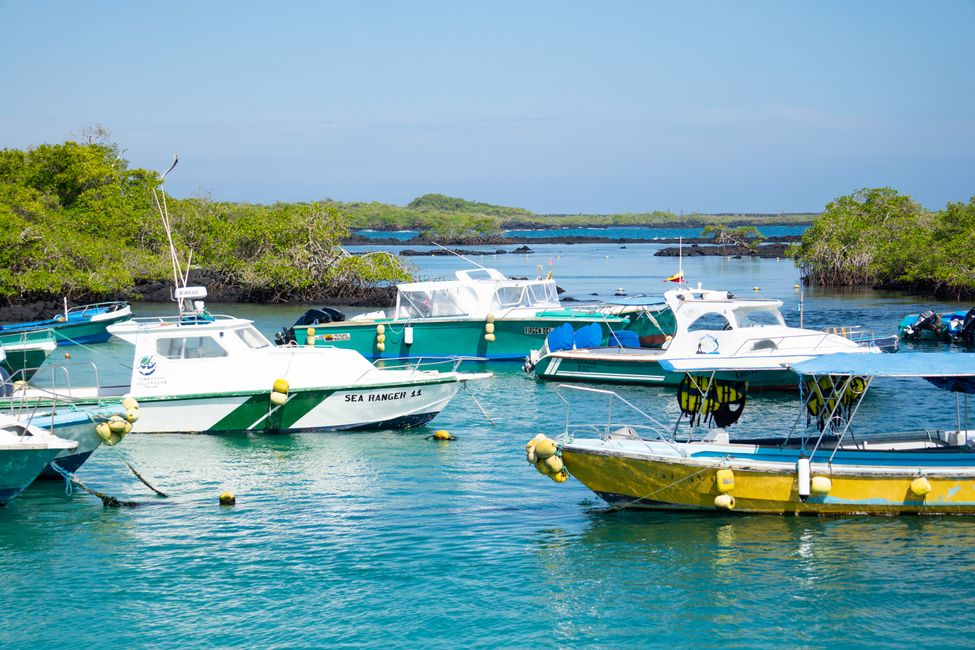
Fa'asoa ile Newsletter
On the third inhabited Galápagos Island Isabela, we spend most of our time and finally find some rest. The entrance to this island costs $10 directly at the pier, but you don't have to pay again when you leave.
We check into our very nice and new hostel Tero Real (highly recommended with a great value for money). The island is very peaceful and its inhabitants have a rather laid-back lifestyle. The internet here is the slowest of all the slow connections we have had in Galapagos so far, the only ATM sometimes runs out of cash, and the restaurants open when they want to. So, you should definitely let yourself be infected by this relaxed island vibe and not see everything in a European way ;)

On the first day, we take it easy, have a late breakfast, and then walk to the beach near the harbor. If you go left past the harbor, there is a long boardwalk through a mangrove forest where we repeatedly spot resting seals in the shade. At the end of the boardwalk, there is a free snorkeling spot (La Concha de Perla) with turquoise and crystal clear water. Already here, we see some colorful fish and even turtles. We somehow spend half of the day there before taking an evening walk on the kilometer-long town beach and watching the sunset from the "Pink Iguana Bar". There we meet Tobi, who we already met on our first day on San Cristobal. We talk to him for a while but then make our way back because we have a new tour planned for tomorrow.

Off to the Tintoreras right in front of Isabela! These are a few small lava islands and tunnels where a lot of iguanas have made themselves comfortable. Of course, you can also find seals, blue-footed boobies, and, believe it or not, we are lucky to see Humboldt penguins!! There are only a few penguins in Galapagos because it is warm all year round here and the penguins are farthest away from their natural habitat. Nevertheless, they seem to feel extremely comfortable in the fish-rich waters here.

We stroll around the Tintoreras and come across a natural resting pool for white-tip sharks. At first, we only see a few sharks, but the further we go, the more there are! We count 60-70 sharks in an area of approximately 15 square meters! A fearless marine iguana doesn't seem to care at all, as it simply swims right through the shark tank... Smart, because it knows that the sharks are tired and full during the day and mainly hunt at night.

Afterwards, we also venture into the water and see a colorful underwater world, corals, starfish, seals, and of course, sharks. As we squeeze through a lava tunnel about 1 meter wide, a 3-meter-long shark swims underneath us (no way to avoid it). After a brief moment of shock, we survive it well. Unfortunately, the short tour is already over (duration about 2-3 hours).

What should we do with our afternoon now? How about a bike ride? There are several bike rentals on Isabela, and a bike costs about $10-20/day.
We ride parallel to the beach, initially on a very sandy road (caution: danger of accidents) passing some ponds where we meet a flamingo, and then we come to a small control hut where access to the national park is regulated. After that, the bike path is well developed, only the occasional iguana or giant tortoise lies in the middle of the path. There are several marked detours to viewpoints, beaches, and lakes where you can easily park your bike and continue on foot.
We ride until the end of the road where you can reach the "Wall of Tears" (about 7 km from the town, partly uphill). There used to be a prison camp here where many people died, among other things during the construction of this wall.

A small path leads around the Wall of Tears and then up the mountain to 3 different viewpoints. From up here, you can overlook the dry trees with long lichens hanging from them, swaying in the wind. At the other higher viewpoints, you can see the bays, the small town, and the sea. On the way back, we see a really huge tortoise that differs from those on Santa Cruz in the shape of its shell. It happily munches on the only flower in the area...

Armed with our bikes, we ride the whole way back and stop at a mangrove forest where we follow it to a tiny bay where two seals have taken over the benches and snore away in peace. Sina and Matze from Hamburg give us the tip to simply wade through the water until you see the open sea and discover many blue-footed boobies on the offshore rocks. Done. A little seal swims with us for a short distance.

At some point, it starts to rain and we turn back. The rest of the signposted stops are not that interesting anymore, and we quickly (as far as the sandy ground allows) ride back to the bike rental shop and our hostel.
Tomorrow, we can look forward to one of the most beautiful tours: the Los Tuneles tour!
Good morning, snorkeling friends! In the Tuneles, about an hour by boat from the small town on Isabela, there are several highlights waiting for us. Surprisingly, there are a lot of Germans on board: Svenja, Katie, Göki, and also Sina and Matze from yesterday. With 80s and 90s music playing, time flies by, and we can almost forget how cold and cloudy it is today.
The sea is rough, but our captain skillfully navigates through the many partly submerged lava rocks that are barely visible, and then suddenly it's calm around us. We find ourselves in a large tunnel and bridge system made of dark lava stone, and there is something new to discover behind every corner.

We go ashore and can watch sea turtles engage in awkward courtship. It looks funny, but it can be dangerous for the female, who is surrounded by 5 males, as they repeatedly push her underwater in their attempt to get on top, where she can't breathe. But don't worry, the female is fine.

In addition, we discover a nest of blue-footed boobies, with a pretty large "chick" inside. It doesn't have blue feet yet, as it only develops them when it reaches sexual maturity.
We continue underwater. When snorkeling through the many passages and tunnels, it's good to have an experienced guide with you. He discovers a medium-sized octopus, which he quickly lifts from the bottom to the surface. The slippery fellow doesn't like that at all and quickly escapes in a cloud of ink. Our guide's eyes are trained because he also finds a huge seahorse! He balances the approximately 30cm large creature on a rock to show it to us before returning it to the same spot.

Back on the boat, we can watch some penguins on the rocks at the next snorkeling spot, who are completely undisturbed. The sea is particularly calm between the rocks, and we jump into the water again with wetsuits and snorkels. And there it is, the first sea turtle. And they are simply everywhere! No matter where you swim, suddenly a turtle appears next to or beneath you, and sometimes they are about 1.5 meters in size! It's a true paradise! Colorful fish, corals, and sharks join them. Our guide leads us to a large cave where more sharks hide, and at the entrance, there are huge stingrays (about 2-3m in size). So, be careful where you step with your fins because you don't want to get stung by them.

Overjoyed with everything we have already seen, we get back on the boat and head back to the harbor. But then suddenly, we spot a large fin and swirling water... We stop and see huge manta rays in the water, with a wingspan of about 4-5 meters, dancing around each other with a grace we have never seen before! They swim right next to the boat, showing us their white underside, and we are absolutely speechless at how big these creatures are.

Wow, can someone pinch us?? We couldn't have imagined seeing all this here in Galapagos even in our wildest dreams!! We feel blessed and don't know what to do with our excitement... It's simply unique! Infinite love for the wonders of nature, which you can experience up close here 💚
In the evening, we meet up with the Tuneles crew at the island's place-to-be, the "Pink Iguana Bar", with a campfire and a starry sky, for a few cocktails.

On our last day on Isabela, we hike up the Sierra Negra volcano and meet many familiar and new faces there. During the 5-hour tour in the blazing sun, we have plenty of time for extensive conversations. The volcanic rock has the most diverse colors, from yellow to red to green and black, which the sun naturally finds particularly attractive and turns the hike into a sauna visit...

At the largest crater, the clouds flow over the edge in exciting formations, and you can still see where the lava flowed during the last eruption of the volcano on June 26, 2018. We walk a bit further and have a nice view over the sea and the barren volcanic landscape. The way back along the same path feels very long, and everyone is relieved when we reach the bus.
Armed with a beer and fresh giant empanadas, we sit on the beach for our very last Isabela sunset and have a little snack at a restaurant on the main square of the town.
We have really enjoyed the days on Isabela, and it was wonderful not having to move to a new accommodation every day. But today, it's time to pack, check out, take a short walk on the beach, and then get on a small ferry again to continue our journey. We are returning to Santa Cruz, from where we will fly to Bogotá, Colombia in 2 days.
Galapagos, you were so amazing that we can't find words... Those who haven't been there, haven't been there. Dear people, you must travel to this special piece of Earth at least once in your life and see for yourselves how indescribably unique these islands are 🥹🇪🇨✨💙
Here is a video of our Galapagos adventure: https://vimeo.com/790768249
Fa'asoa ile Newsletter
Tali
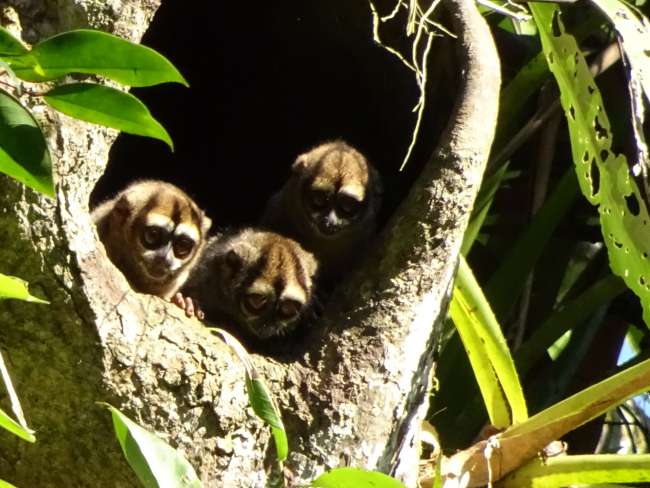
Lipoti o femalagaaiga Ecuador
